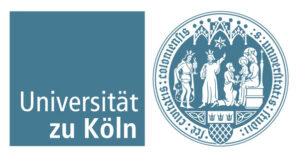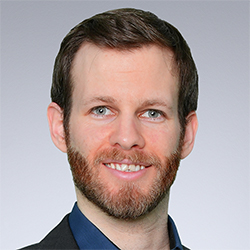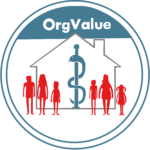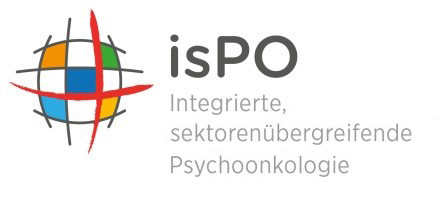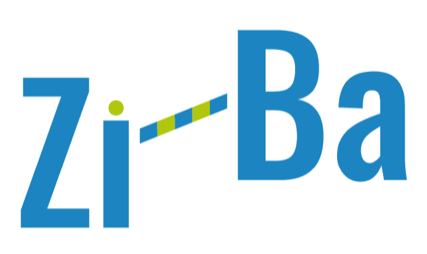Chair of Health Services Research in Rehabilitation
Short description
The Chair of “Quality Development and Evaluation in Rehabilitation” is supported by the Bridge Professorship of the Faculty of Medicine and the Faculty of Human Sciences of the University of Cologne. Since the foundation of the bridge institute IMVR in 2009, Prof. Dr. Holger Pfaff is the chair holder. The working group “inVersorgung” of PD Dr. Ute Karbach is located at the chair.
Our research focuses are care research in rehabilitation, organizational research and labor research. We focus our analyses on the organizations of the social and health care system, their service providers, and the people who use the services.
In our team we combine several scientific disciplines and thus have a broad theoretical and empirical expertise. We are experts in planning, organizing, conducting and evaluating studies in health care facilities and employer organizations as well as in interviewing patients, employees and managers.
Our scientific work aims to generate knowledge, to transfer this knowledge into practice and to contribute with this knowledge to the improvement of the health care system.
Our chair is responsible for the teaching area “Quality Development in Rehabilitation” (Faculty of Human Sciences: Master’s degree program in rehabilitation science, Bachelor’s degree program in therapeutic pedagogy; teacher training programs). Together with Prof. Dr. Nicole Ernstmann (Chair of Health Services Research), Prof. Pfaff also heads the Master’s program in Health Services Science.
Team

Vertr.-Prof. Dr. Christian Heuser
Chair of Health Service Research in Rehabilitation

Priv.-Doz. Dr. Ute Karbach
Working group leader “inVersorgung”

Nina Goldberg
Research associate

Saskia Gollasch
Research associate

Christin Herrmann
Research associate
Carsten Rusniok
Research associate

Anna-Lisa Tigges
Research associate
Offices

Susanne Walke
Chief Secretary Prof. Pfaff

Nina Dräger
Teaching secretary
Projects
Publications (Journal contributions)
- Mause, L., Hoffmann, J., Reimer, A., Dresbach, T., Horenkamp‐Sonntag, D., Klein, M., & Scholten, N. (2022). Response to the letter concerning our publication on parental trust and stress experience. Acta Paediatrica, 111(5), 1085-1086. https://doi.org/10.1111/apa.16286
- Scholten, N., Mause, L., Horenkamp-Sonntag, D., Klein, M. & Dresbach, T. (2022). Initiation of lactation and the provision of human milk to preterm infants in German neonatal intensive care units from the mothers’ perspective. BMC pregnancy and childbirth, 22(1), 158. https://doi.org/10.1186/s12884-022-04468-7
- Mause, L., Hoffmann, J., Reimer, A., Dresbach, T., Horenkamp-Sonntag, D., Klein, M. & Scholten, N. (2022). Trust in medical professionals and its influence on the stress experience of parents of premature infants. Acta Paediatrica, 111(3), 527-535. https://doi.org/10.1111/apa.16187
- Rackerseder, J., Hornbach, C., Dicks, P., Kerek-Bodden, H. & Krieger, T. (2022). Designing a Patient-Friendly Website for Newly Diagnosed Cancer Patients with the Participatory Health Research Approach. International Journal of Environmental Research and Public Health, 19(4). https://doi.org/10.3390/ijerph19041969
- Sibert, N. T., Pfaff, H., Breidenbach, C., Wesselmann, S., Roth, R., Feick, G., Carl, G., Dieng, S., Gaber, A. A., Blana, A., Darr, C., Distler, F., Kunath, F., Bedke, J., Erdmann, J., Minner, J., Simon, J., Kwiatkowski, M., Burchardt, M., . . . Kowalski, C. (2022). Variation across operating sites in urinary and sexual outcomes after radical prostatectomy in localized and locally advanced prostate cancer. World Journal of Urology. Vorab-Onlinepublikation. https://doi.org/10.1007/s00345-022-03985-6
- Knörr, V., Dini, L., Gunkel, S., Hofmann, J., Mause, L., Ohnhäuser, T., Stöcker, A. & Scholten, N. (2022). Use of telemedicine in the outpatient sector during the COVID-19 pandemic: a cross-sectional survey of German physicians. BMC Primary Care, 23(92). https://www.doi.org/10.1186/s12875-022-01699-7
- Lindert, L., Schlomann, L., Pfaff, H., Choi, K.-E. (2022). The Role of Psychological Wellbeing in a Cross-Provider Worksite Healthcare Management Program for Employees with Musculoskeletal Disorders. International Journal of Environmental Research and Public Health, 19(9), 5452. https://doi.org/10.3390/ijerph19095452
- Salm, S., Cecon, N., Jenniches, I., Pfaff, H., Scholten, N., Dresen, A., & Krieger, T. (2022). Conducting a prospective evaluation of the development of a complex psycho-oncological care programme (isPO) in Germany. BMC Health Services Research, 22, 531. https://www.doi.org/10.1186/s12913-022-07951-1
- Kusch, M., Labouvie, H., Schiewer, V., Talalaev, N., Cwik, J. C., Bussmann, S., Vaganian, L., Gerlach, A.L., Dresen, A., Cecon, N., Salm, S., Krieger, T., Pfaff, H., Lemmen, C., Derendorf, L., Stock, S., Samel, C., Hagemeier, A., Hellmich, M., Leicher, B., Hültenschmidt, G., Swoboda, J., Haas, P., Arning, A., Göttel, A., Schwickerath, K., Graeven, U., Houwaart, S., Kerek-Bodden, H., Krebs, S., Muth, C., Hecker, C., Reiser, M., Mauch, C., Brenner, J., Schmidt, G., Karlowsky, C., Vimalanandan, G., Matyschick, L., Galonska, L., Francke, A., Osborne, K., Nestle, U., Bäumer, M., Schmitz, K., Wolf, J. & Hallek, M. (2022). Integrated, cross-sectoral psycho-oncology (isPO): A new form of care for newly diagnosed cancer patients in Germany. BMC Health Services Research, 22, 543. https://www.doi.org/10.1186/s12913-022-07782-0
- Kremeike, K., Ullrich, A., Schulz, H., Rosendahl, C., Boström, K., Kaur, S., Oubaid, N., Plathe-Ignatz, C., Leminski, C., Hower, K., Pfaff, H., Hellmich, M. Oechsle & Voltz, R. (2022). Dying in hospital in Germany–optimising care in the dying phase: study protocol for a multi-centre bottom-up intervention on ward level. BMC Palliative Care, 21, 67. https://www.doi.org/10.1186/s12904-022-00960-1
- Lubasch, J. S., Lee, S., Wirtz, M. A., Pfaff, H., & Ansmann, L. (2022). Validation of a patient-reported measure of social support provided by nurses in breast cancer care (SuPP-N): based on a cross-sectional patient survey in 83 German hospitals. BMJ open, 12(4), e054015. https://www.doi.org/10.1136/bmjopen-2021-054015
- Pfaff, H., Pförtner, T. K., Banaszak-Holl, J., Hu, Y., & Hower, K. (2022). Is the Systemic Agency Capacity of Long-Term Care Organizations Enabling Person-Centered Care during the COVID-19 Pandemic? A Repeated Cross-Sectional Study of Organizational Resilience. International Journal of Environmental Research and Public Health, 19(9), 5045. https://doi.org/10.3390/ijerph19095045
- Choi, K. E. A., Lindert, L., Schlomann, L., & Pfaff, H. (2022). “I’ll leave that to the case managers.” Healthcare Service Providers ‘Perceptions of Organizational Readiness for Change in a Randomized Controlled Trial—A Qualitative Analysis Exploring Implementation Success. International Journal of Environmental Research and Public Health, 19(9), 5782. https://doi.org/10.3390/ijerph19095782
- Breidenbach, C., Heidkamp, P., Hiltrop, K., Pfaff, H., Enders, A., Ernstmann, N. & Kowalski, C. (2022). Prevalence and determinants of anxiety and depression in long-term breast cancer survivors. BMC psychiatry, 22(1), 101. https://doi.org/10.1186/s12888-022-03735-3
- Kuske, S., Holmberg, C., Wensing, M., Reuschenbach, B., Büscher, A., Neugebauer, E., Pfaff, H., Karbach, U., Balzer, K., Köpke, S. & Ernstmann, N. (2022). Studiengänge zur Versorgungsforschung in Deutschland: aktueller Stand und zukünftige Perspektiven [Educational Programmes in Health Services Research in Germany: Current State and Future Perspectives]. Gesundheitswesen (Bundesverband der Ärzte des Öffentlichen Gesundheitsdienstes (Germany)), 84(3), 227–241. https://doi.org/10.1055/a-1276-0686
- Ohlmeier, S., Klingler, C., Schellartz, I. & Pfaff, H. (2022). Having a Break or Being Imprisoned: Influence of Subjective Interpretations of Quarantine and Isolation on Boredom. International Journal of Environmental Research and Public Health, 19(4). https://doi.org/10.3390/ijerph19042207
- Cecon, N., Krieger, T., Salm, S., Pfaff, H. & Dresen, A. (2022). Salutogenesis at Work as a Facilitator for Implementation? An Explorative Study on the Relationship of Job Demands, Job Resources and the Work-Related Sense of Coherence within a Complex Healthcare Programme. Int J Environ Res (International Journal of Environmental Research and Public Health), 19(3), 1842. https://doi.org/10.3390/ijerph19031842
- Demirer, I., Kühhirt, M., Karbach, U. & Pfaff, H. (2022). Does positive affect mediate the association of multimorbidity on depressive symptoms? Aging & mental health, 26(1), 65–76. https://doi.org/10.1080/13607863.2020.1870209
- Krieger, T., Salm, S., Dresen, A., Arning, A., Schwickerath, K., Göttel, A., Houwaart, S., Pfaff, H. & Cecon, N. (2022). Optimizing Patient Information Material for a New Psycho-Oncological Care Program Using a Participatory Health Research Approach in Germany. International Journal of Environmental Research and Public Health, 19(3), 1518. https://doi.org/10.3390/ijerph19031518
- Pförtner, T.‑K., Pfaff, H. & Elgar, F. J. (2022). Dualized Labor Market and Polarized Health: A Longitudinal Perspective on the Association between Precarious Employment and Mental and Physical Health in Germany. Journal of Health and Social Behavior, 221465211066855. https://doi.org/10.1177/00221465211066855
- Salm, S., Mollenhauer, J., Hornbach, C., Cecon, N., Dresen, A., Houwaart, S., Arning, A., Göttel, A., Schwickerath, K., Pfaff, H., Scholten, N. & Krieger, T. (2021). Participatory Development and Preliminary Psychometric Properties of the User-Friendly Patient Information Material Checklist (UPIM-Check). International Journal of Environmental Research and Public Health, 18(16). https://doi.org/10.3390/ijerph18168773
- Schellartz, I., Mettang, S., Shukri, A., Scholten, N., Pfaff, H. & Mettang, T. (2021). Early Referral to Nephrological Care and the Uptake of Peritoneal Dialysis. An Analysis of German Claims Data. International Journal of Environmental Research and Public Health, 18(16). https://doi.org/10.3390/ijerph18168359
- Schippel, N., Hower, K. I., Zank, S., Pfaff, H. & Rietz, C. (2021). Considering the role of context when implementing government policies in hospitals: introduction of a prospective payment system for psychiatry. Journal of Health Organization and Management, ahead-of-print(ahead-of-print). https://doi.org/10.1108/JHOM-01-2021-0021
- Scholten, N., Ihle, P. & Pfaff, H. (2021). Nachhaltige Infrastruktur für die Versorgungsforschung: Der Aufbau einer regionalen, krankenkassenübergreifenden GKV-Routinedatenbank [Sustainable Infrastructure for Health Services Research: Development of a Regional SHI Routine Database]. Gesundheitswesen (Bundesverband der Ärzte des Öffentlichen Gesundheitsdienstes (Germany), 83(6), 463–469. https://doi.org/10.1055/a-1205-0751
- Richter, S., Demirer, I., Nocon, M., Pfaff, H. & Karbach, U. (2021). When do physicians perceive the success of a new care model differently? BMC health services research, 21(1), 1058. https://doi.org/10.1186/s12913-021-07061-4
- Pförtner, T., Pfaff, H. & Hower, K. (2021). The effect of the COVID-19 pandemic on long-term care managers’ intention to quit. European journal of public health, 31(Supplement_3), Artikel ckab165.058. https://doi.org/10.1093/eurpub/ckab165.058
- Pfaff, H. & Schmitt, J. (2021). The Organic Turn: Coping With Pandemic and Non-pandemic Challenges by Integrating Evidence-, Theory-, Experience-, and Context-Based Knowledge in Advising Health Policy. Frontiers in Public Health, 9, Artikel 727427. https://doi.org/10.3389/fpubh.2021.727427
- Nowak, M., Swora, M., Karbach, U., Pfaff, H. & Ansmann, L. (2021). Associations between hospital structures, processes and patient experiences of preparation for discharge in breast cancer centers: A multilevel analysis. Health Care Management Review, 46(2), 98–110. https://doi.org/10.1097/HMR.0000000000000237
- Pförtner, T.‑K., Hower, K., Pfaff, H. & AG Pflege, Gesundheit, Altern des Kompetenznetzes Public Health zu COVID-19. (2021). Pflegerische Versorgung in Zeiten von Corona- Drohender Systemkollaps oder normaler Wahnsinn? 2. wissenschaftliche Studie zu Herausforderungen und Belastungen aus der Sichtweise von Leitungskräften. Köln. Institut für Medizinsoziologie, Versorgungsforschung und Rehabilitationswissenschaft (IMVR).
- Neumann, J., Seinsche, L., Zeike, S., Lindert, L. & Pfaff, H. (2021). Homeoffice- und Präsenzkultur im öffentlichen Dienst in Zeiten der Covid-19-Pandemie: Follow-Up-Befragung. Köln. Institut für Medizinsoziologie, Versorgungsforschung und Rehabilitation (IMVR).
- Hower, K. I., Pfaff, H. & Pförtner, T.‑K. (2021). Is time a healer? Course of demands during the COVID-19 pandemic in long-term care: a repeated cross-sectional survey in Germany. Journal of public health (Oxford, England), 43(3), e435-e437. https://doi.org/10.1093/pubmed/fdab144
- Heidkamp, P., Breidenbach, C., Hiltrop, K., Kowalski, C., Enders, A., Pfaff, H., Weltermann, B., Geiser, F. & Ernstmann, N. (2021). Individual courses and determinants of fear of cancer recurrence in long-term breast cancer survivors with and without recurrence. Supportive care in cancer : official journal of the Multinational Association of Supportive Care in Cancer. 29(12), 7647-7657. https://doi.org/10.1007/s00520-021-06329-z
- Hammer, A., Arah, O. A., Mannion, R., Groene, O., Sunol, R., Pfaff, H. & Choi, K.‑E. (2021). Measuring social capital of hospital management boards in European hospitals: A validation study on psychometric properties of a questionnaire for Chief Executive Officers. BMC health services research, 21(1), 1036. https://doi.org/10.1186/s12913-021-07067-y
- Demirer, I., Kühhirt, M., Karbach, U. & Pfaff, H. (2021). Does positive affect mediate the association of multimorbidity on depressive symptoms? Aging & mental health, 1–12. https://doi.org/10.1080/13607863.2020.1870209
- Choi, K.‑E., Lindert, L., Schlomann, L., Samel, C., Hellmich, M. & Pfaff, H. (2021). A Cross-Provider Healthcare Management Program for Musculoskeletal Disorders: Results of a Randomized Controlled Trial in 22 German Companies. International Journal of Environmental Research and Public Health, 18(22), 11844. https://doi.org/10.3390/ijerph182211844
- Ansmann, L., Vennedey, V., Hillen, H. A., Stock, S., Kuntz, L., Pfaff, H., Mannion, R., Hower, K. I., & Cologne Research And Development Network CoRe-Net Study Group, C. (2021). Resource dependency and strategy in healthcare organizations during a time of scarce resources: evidence from the metropolitan area of cologne. Journal of health organization and management, 35(9), 211–227. https://doi.org/10.1108/JHOM-12-2020-0478
- Niecke, A., Ramesh, I., Albus, C., Lüngen, M., Pfaff, H., Samel, C. & Peters, K. M. (2021). Chronische Schmerzen bei Menschen mit Thalidomid-Embryopathie Eine explorative Analyse zu Prävalenz, schmerzbezogenen Merkmalen und biopsychosozialen Faktoren [Chronic Pain in People Impaired by Thalidomide Embryopathy: An Explorative Analysis of Prevalence, Pain Parameters and Biopsychosocial Factors]. Psychotherapie, Psychosomatik, medizinische Psychologie, 71(9-10), 370–380. https://doi.org/10.1055/a-1457-2846
- Hiltrop, K., Heidkamp, P., Breidenbach, C., Kowalski, C., Enders, A., Pfaff, H., Ansmann, L., Geiser, F. & Ernstmann, N. (2021). Involuntariness of job changes is related to less satisfaction with occupational development in long-term breast cancer survivors. Journal of cancer survivorship : research and practic. 10.1007/s11764-021-01035-5
- Peters, S., Schaller, A., Thiel, C., Gabrys, L. & Nellessen-Martens, G.(2021). Körperliche Aktivität in der SARS-CoV-2-Pandemie: Selektiver Überblick und Perspektiven. Monitor Versorgungsforschung, 14(2), S. 53-68. http://doi.org/10.24945/MVF.02.21.1866-0533.2299
- Beckmann, M., Dittmer, K., Jaschke, J., Karbach, U., Köberlein-Neu, J., Nocon, M., Rusniok, C., Wurster, F. & Pfaff, H. (2021). Electronic patient record and its effects on social aspects of interprofessional collaboration and clinical workflows in hospitals (eCoCo): a mixed methods study protocol. BMC health services research, 21(1), S. 377. 10.1186/s12913-021-06377-5
- Cecon, N., Pfaff, H., Lee, S., Dresen, A. (2021). A salutogenic model predicting the need for psycho-oncological care and its utilisation-The role of generalised resistance resources and sense of coherence. Eur. J. European Journal of Cancer Care 30 (1) https://doi.org/10.1111/ecc.13335 1
- Pfaff, H., Hammer, A., Ballester, M., Schubin, K., Swora, M. & Sunol, R. (2021). Social determinants of the impact of hospital management boards on quality management: a study of 109 European hospitals using a parsonian approach. BMC health services research, 21(1), 70. https://doi.org/10.1186/s12913-020-06053-0
- Cecon, N., Lee, S., Pfaff, H., Dresen, A. & Groß, S. E. (2021). Development of the health behaviour scale for cancer patients (HBSCP), analysis of its factorial structure and evaluation of its psychometric properties. European Journal of Cancer Care, 30(2), e13386. https://doi.org/10.1111/ecc.13386
- Pförtner, T., Pfaff, H., Hower, K. (2021). Will the demands by the covid-19 pandemic increase the intent to quit the profession of long-term care managers? A repeated cross-sectional study in Germany. Journal of Public Health | pp. 1–4 | doi:10.1093/pubmed/fdab081
- Demirer, I., Bethge, M., Spyra, K., Karbach, U. & Pfaff, H. (2021). Does social support mediate the effect of multimorbidity on mental wellbeing in the German working population? A longitudinal mediation analysis using structural equation modelling. SSM – population health, 13, 100744. https://doi.org/10.1016/j.ssmph.2021.100744
- Dittmer, K., Hower, K. I., Beckmann, M., Karbach, U. & Pfaff, H. (2021). A qualitative study of the adoption of Value Stream Mapping in breast cancer centers. European journal of oncology nursing 54, 102037
- Leidner, C., Vennedey, V., Hillen, H., Ansmann, L., Stock, S., Kuntz, L., Pfaff, H. & Hower, K. I. (2021). Implementation of patient-centred care: which system-level determinants matter from a decision maker’s perspective? Results from a qualitative interview study across various health and social care organisations. BMJ Open, 11(9), e050054. https://doi.org/10.1136/bmjopen-2021-050054
- Schubin, K., Pfaff, H. & Zeike, S. (2021). How managers perceive and (do not) participate in health promotion measures—results from a cross-sectional mixed-methods survey in a Large ICT company. International Journal of Environmental Research and Public Health, 18(18), 9708. https://doi.org/10.3390/ijerph18189708
- Salm, S., Mollenhauer, J., Hornbach, C., Cecon, N., Dresen, A., Houwaart, S., Arning, A., Göttel, A., Schwickerath, K., Pfaff, H. et al. Participatory Development and Preliminary Psychometric Properties of the User-Friendly Patient Information Material Checklist (UPIM-Check). Int. J. Environ. Res. Public Health 2021, 18, 8773. https://doi.org/10.3390/ijerph18168773
- Seibert, M., Pfaff, H., Scholten, N. & Kuntz, L. (2021). Do trained nurses feel more psychologically safe?-Results from a multi-level modelling approach. Nursing open, 8(6), 3024–3035. https://doi.org/10.1002/nop2.1015
- Sibert, N. T., Kowalski, C., Pfaff, H., Wesselmann, S. & Breidenbach, C. (2021). Clinicians’ knowledge and attitudes towards patient reported outcomes in colorectal cancer care – insights from qualitative interviews. BMC health services research, 21(1), 366. https://doi.org/10.1186/s12913-021-06361-z
- Seinsche, L., Neumann, J., Lindert, L., Zeike, S. & Pfaff, H. (2021). Homeoffice- und Präsenzkultur im Bereich IT und technische Dienstleistungen in Zeiten der Covid-19-Pandemie: Follow-Up-Befragung. Köln. Institut für Medizinsoziologie, Versorgungsforschung und Rehabilitationswissenschaft (IMVR).
- Mause, L., Hoffmann, J., Ohnhäuser, T., Gunkel, S., Stöcker, A. & Scholten, N. (2021). Work climate in pandemic times: which burdens do German physicians in primary care report? Family practice, 1–6. https://doi.org/10.1093/fampra/cmab085
- Müller, B. S., Klaaßen-Mielke, R., Gonzalez-Gonzalez, A. I., Grandt, D., Hammerschmidt, R., Köberlein-Neu, J., Kellermann-Mühlhoff, P., Trampisch, H. J., Beckmann, T., Düvel, L., Surmann, B., Flaig, B., Ihle, P., Söling, S., Grandt, S., Dinh, T. S., Piotrowski, A., Meyer, I., Karbach, U., Harder, S.; Perera, R., Glasziou, P., Pfaff, H., Greiner, W., Gerlach, F., Timmesfeld, N., Muth, C. (2021). Effectiveness of the application of an electronic medication management support system in patients with polypharmacy in general practice: a study protocol of cluster-randomised controlled trial (AdAM). BMJ Open, 11(9), e048191. https://doi.org/10.1136/bmjopen-2020-048191
- Sibert, N. T., Pfaff, H., Breidenbach, C., Wesselmann, S. & Kowalski, C. (2021). Different Approaches for Case-Mix Adjustment of Patient-Reported Outcomes to Compare Healthcare Providers-Methodological Results of a Systematic Review. Cancers, 13(16), 3964. https://doi.org/10.3390/cancers13163964
- Lubasch, J. S., Lee, S., Kowalski, C., Beckmann, M., Pfaff, H. & Ansmann, L. (2021). Hospital Processes and the Nurse-Patient Interaction in Breast Cancer Care. Findings from a Cross-Sectional Study. International Journal of Environmental Research and Public Health, 18(15), 8224. https://doi.org/10.3390/ijerph18158224
- Strupp, J., Kasdorf, A., Dust, G., Hower, K. I., Seibert, M., Werner, B., Kuntz, L., Schulz-Nieswandt, F., Meyer, I., Pfaff, H., Hellmich, M. & Voltz, R. (2021). Last Year of Life Study-Cologne (LYOL-C) (Part II): study protocol of a prospective interventional mixed-methods study in acute hospitals to analyse the implementation of a trigger question and patient question prompt sheets to optimise patient-centred care. BMJ Open, 11(7), e048681. https://doi.org/10.1136/bmjopen-2021-048681
- Heidkamp, Paula; Breidenbach, Clara; Hiltrop, Kati; Kowalski, Christoph; Enders, Anna; Pfaff, Holger (2021). Individual courses and determinants of fear of cancer recurrence in long-term breast cancer survivors with and without recurrence. Supportive care in cancer
- Zirves, M., Demirer, I., & Pfaff, H. (2021). Everyday Life and Social Contacts of Dementia and Non-Dementia Residents over 80 Years in Long-Term Inpatient Care: A Multi-Level Analysis on the Effect of Staffing. International Journal of Environmental Research and Public Health, 18(21), 11300. MDPI AG. Retrieved from http://dx.doi.org/10.3390/ijerph182111300
- Seibert, M., Pfaff, H., Scholten, N., & Kuntz, L. (2021). Do trained nurses feel more psychologically safe?—Results from a multi-level modelling approach. Nursing Open, 8, 3024– 3035. https://doi.org/10.1002/nop2.1015
- Neumann, J.; Lindert, L.; Seinsche, L.; Zeike, S.; Pfaff, H. (2020). Homeoffice- und Präsenzkultur im öffentlichen Dienst in Zeiten der Covid-19-Pandemie. Institut für Medizinsoziologie, Versorgungsforschung und Rehabilitationswissenschaft (IMVR). Köln.
- Seinsche, L.; Lindert, L.; Neumann, J.; Zeike, S.; Pfaff, H. (2020). Homeoffice- und Präsenzkultur im Bereich IT und technische Dienstleitungen in Zeiten der Covid-19-Pandemie. Institut für Medizinsoziologie, Versorgungsforschung und Rehabilitationswissenschaft (IMVR) Köln.
- Zirves, M., Pfaff, H. (2020). Nursing Home Residents Aged over 80-A Cross-Sectional Analysis on Which Activity Traits Correlate to Positive Affect. IJERPH 17(24), 9583. http://doi.org/10.3390/ijerph17249583
- Hildebrandt, H., Bahrs, O., Borchers, U., Glaeske, G., Griweing, B., Härter, M., Hanneken, J., Hilbert, J., Klapper, B., Klitzsch, W., Köster-Steinbach, I., Kurscheid, C., Lodwig, V., Schaeffer, D., Schrappe, M., Sturm, H., Wehkamp, K., Wild, D. (2020). Integrierte Versorgung als Regelversorgung-eine Replik. Welt der Krankenversicherung 12, 330-335.
- Schrappe, M., François-Kettner, H., Gruhl, M., Hart, D., Knieps, F., Manow, P., Pfaff, H., Püschel, K., Glaeske, G. (2020). Thesenpapier 6.0 zur Pandemie durch SARSCoV-2/Covid-19. Zur Notwendigkeit eines Strategiewechsels. Monitor Versorgungsforschung 13(6), 76-93. http://doi.org/10.24945/MVF.06.20.1866-0533.22678
- Voltz, R., Dust, G., Schippel, N., Hamacher, S., Payne, S., Scholten, N., Pfaff, H., Rietz, C., Strupp, J. (2020). Improving regional care in the last year of life by setting up a pragmatic evidence-based Plan-Do-Study-Act cycle: results from a cross-sectional survey. BMJ Open 10(11), e035988. 10.1136/bmjopen-2019-035988
- Hower, K. I., Vennedey, V., Hillen, H. A., Stock, S., Kuntz, L., Pfaff, H., Pförtner, T.-K., Scholl, I., Ansmann, L. (2020). Is organizational communication climate a precondition for patient-centered care? Insights from a key informant survey of various health and social care organizations. IJERPH (International Journal of Environmental Research and Public Health) 17(21). https://doi.org/10.3390/ijerph17218074
- Li, D., Hu, Y., Pfaff, H., Wang, L., Deng, L., Lu, C., Xia, S., Cheng, S.,; Zhu, X., Wu, X. (2020). Determinants of patients’ intention to use the online inquiry services provided by Internet hospitals: Empirical evidence from China. J Med Internet Res (Journal of Medical Internet Research) 22(10), e22716. https://doi.org/10.2196/22716
- Schrappe, M., François-Kettner, H., Gruhl, M., Hart, D., Knieps, F., Manow, P., Pfaff, H., Püschel, K., Glaeske, G. (2020). Die Pandemie durch SARS-CoV-2/Covid-19 – Spezifische Prävention als Grundlage der „Stabilen Kontrolle“ der SARS-CoV-2-Epidemie (Thesenpapier 5.0). Monitor Versorgungsforschung, 13(6), 50-63. http://doi.org/10.24945/MVF.06.20.1866-0533.2266
- Schrappe, M., François-Kettner, H., Gruhl, M., Hart, D., Knieps, F., Manow, P., Pfaff, H., Püschel, K., Glaeske, G. (2020). Ad hoc-Stellungnahme der Autorengruppe zur Beschlussfassung der Konferenz der Bundeskanzlerin und der Ministerpräsident/innen der Länder am 14.10.2020: Die Pandemie durch SARS-CoV-2/Covid-19 – Gleichgewicht und Augenmaß behalten. https://www.monitor-versorgungsforschung.de/Abstracts/Abstract2020/MVF-05-20/pdf_0520/Adhoc-Stellungnahme-Covid-19/view
- Schrappe, M., François-Kettner, H., Gruhl, M., Hart, D., Knieps, F., Manow, P., Pfaff, H., Püschel, K., Glaeske, G. (2020). Thesenpapier 4.1 zur Pandemie durch SARSCoV-2/Covid-19. Die Pandemie durch SARS-CoV-2/Covid-19 – der Übergang zur chronischen Phase. Verbesserung der Outcomes in Sicht; Stabile Kontrolle: Würde und Humanität wahren; Diskursverengung vermeiden: Corona nicht politisieren. Monitor Versorgungsforschung 13(5), 35–68. http://doi.org/10.24945/MVF.05.20.1866-0533.2253
- Salm, S., Blaschke, K., Ihle, P., Schubert, I., Dresen, A., Pfaff, H., Scholten, N. (2020). Mental disorders and utilization of mental health services in newly diagnosed cancer patients: an analysis of German health insurance claims data. Psycho-Oncology. https://doi.org/10.1002/pon.5579
- Schubin, K.; Schlomann, L.; Lindert, L.; Pfaff, H.; Choi, K.-E. Occupational Physicians’ Perspectives on Determinants of Employee Participation in a Randomized Controlled Musculoskeletal Health Promotion Measure: A Qualitative Study. Int. J. Environ. Res. Public Health 2020, 17, 7445; https://doi.org/10.3390/ijerph17207445
- Groß, S. E., Weidner, D., Cecon, N., Pfaff, H., Strauch, C., Scholten, N. (2020). Does basic information concerning nutrition improve the information needs of breast cancer patients? An evaluation. Supportive care in cancer : official journal of the Multinational Association of Supportive Care in Cancer, 28(11), 5419–5427. http://doi.org/10.1007/s00520-020-05385-1
- Volkert, A., Pfaff, H. & Scholten, N. (2020). What Really Matters? Organizational Versus Regional Determinants of Hospitals Providing Medical Service Centres. Health Policy, 124(12), 1354–1362. https://doi.org/10.1016/j.healthpol.2020.07.011
- Cecon, N., Pfaff, H., Lee, S. & Dresen, A. (2020). A salutogenic model predicting the need for psycho-oncological care and its utilisation – The role of generalised resistance resources and sense of coherence. Eur. J. Cancer Care,00:e13335. http://doi.org/10.1111/ecc.13335
- Cecon, N., Pfaff, H., Lee, S. & Dresen, A. (2020). A salutogenic model predicting the need for psycho-oncological care and its utilisation – The role of generalised resistance resources and sense of coherence. Eur. J. Cancer Care,00:e13335. http://doi.org/10.1111/ecc.13335
- Söling, S., Köberlein-Neu, J., Müller, B., Dinh, T.S., Muth, C., Pfaff, H., Karbach, & U. (2020). From sensitization to adoption? A qualitative study of the implementation of a digitally supported intervention for clinical decision making in polypharmacy. Implementation science, 15, 1-12. http://doi,org/10.1186/s13012-020-01043-6
- Hildebrandt, H., Bahrs, O., Borchers, U., Glaeske, G., Griweing, B., Härter, M., Hanneken, J., Hilbert, J., Klapper, B., Klitzsch, W., Köster-Steinbach, I., Kurscheid, C., Lodwig, V., Pfaff, H., Schaeffer, D., Schrappe, M., Sturm, H., Wehkamp, K., & Wild, D. (2020). Integrierte Versorgung als nachhaltige Regelversorgung auf regionaler Ebene – Teil 2. Welt der Krankenversicherung, 9, 1-12.
- Schrappe, M., François-Kettner, H., Gruhl, M., Hart, D., Knieps, F., Manow, P., Pfaff, H., Püschel, K., & Glaeske, G. (2020). Thesenpapier 4.0 zur Pandemie durch SARSCoV-2/Covid-19. Die Pandemie durch SARS-CoV-2/Covid-19 – der Übergang zur chronischen Phase. Verbesserung der Outcomes in Sicht / Stabile Kontrolle: Würde und Humanität wahren / Diskursverengung vermeiden: Corona nicht politisieren. Monitor Versorgungsforschung, 13, 35- 68. http://doi.org/10.24945/MVF.05.20.1866-0533.2248
- Kowalski, C., Albert, U.-S., Baumann, W., Carl, E.-G., Ernstmann, N., Hermes- Moll, K., Fallenberg, E.M., Feick, G., Feiten, S., Härter, M., Heidt, V., Heuser, C., Hübner, J., Joos, S., Katalinic, A., Kempkens, Ö., Kerek-Bodden, H., Klinkhammer-Schalke, M., Koller, M., Langer, T., et al. (2020). DNVF-Memorandum Versorgungsforschung in der Onkologie. Das Gesundheitswesen. 1-15. https://doi.org/10.1055/a-1191-3759
- Hower, K., Pfaff, H., & Pförtner, T.-K. (2020). Pflege in Zeiten von COVID-19: Onlinebefragung von Leitungskräften zu Herausforderungen, Belastungen und Bewältigungsstrategien. Pflege, 33(4), 207-218. https://doi.org/10.1024/1012-5302/a000752
- Pfaff, H., & Braithwaite, J. (2020). A Parsonian Approach to Patient Safety: Transformational Leadership and Social Capital as Preconditions for Clinical Risk Management—the GI Factor. Int. J. Environ. Res. Public Health, 17, 1-13. https://doi.org/10.3390/ijerph17113989
- Hower, K., Pförtner, T.-K., & Pfaff, H. (2020). Mehr als der „normale Wahnsinn“?. Monitor Pflege, 6, 16-18.
- Schrappe, M., François-Kettner, H., Knieps, F., Pfaff, H., Püschel, K., & Glaeske, G. (2020). Pandemie durch SARS-CoV-2/Covid-19 Datenbasis verbessern, Prävention gezielt weiterentwickeln, Bürgerrechte wahren. Zeitschrift Medizinrecht, 38, 637-644. https://doi.org/10.1007/s00350-020-5614-z
- Hower, K., Pförtner, T., Saak, P., Schneider, A., Aydin, O., Pfaff, H., Kons, J., Groß, S., & Ansmann, L. (2020). Evaluation des FITKIDS-Programms zum gesunden Aufwachsen von Kindern aus suchtbelasteten Familien. Suchttherapie, 1-10. https://doi.org/10.1055/a-1168-3676
- Schrappe, M., François-Kettner, H., Gruhl, M., Hart, D., Knieps, F., Pfaff, H., Püschel, K., & Glaeske, G. (2020). Thesenpapier 3.0 zur Pandemie durch SARS-CoV-2/Covid-19: Eine erste Bilanz. Monitor Versorgungsforschung, 1-23. https://doi.org/10.24945/MVF.04.20.1866-0533.2231
- Pfaff, H. (2020). 7 Thesen zum Innovationsfonds. Betriebskrankenkassen Magazin für Politik, Recht und Gesundheit im Unternehmen, 3, 55-63.
- Nakata, H., Halbach, S., Geiser, F., Stock, S., Kowalski, C., Enders, A., Pfaff, H., & Ernstmann, N. (2020). Health literacy, mental disorders and fear of progression and their association with a need for psycho-oncological care over the course of a breast cancer treatment. Psychology, health & medicine, 1-4. https://doi.org/10.1080/13548506.2020.1772987
- Cheng. S., Hu, Y., Pfaff, H., Lu, C., Qiang, F., Wang, L., Li, D., & Xia, S. (2020). The Patient Safety Culture Scale for Chinese Primary Health Care Institutions: Development, Validity and Reliability. Journal of patient safety, 1-8. https://doi.org/10.1097/PTS.0000000000000733
- Schrappe, M., François-Kettner, H., Knieps, F., Pfaff, H., Püschel, K., & Glaeske, G. (2020). Datenbasis verbessern. Prävention gezielt weiterentwickeln. Bürgerrechte wahren. Thesenpapier 2.0 zur Pandemie durch SARSCoV-2/Covid-19. Monitor Versorgungsforschung, 13, 60-89. https://doi.org/10.24945/MVF.03.20.1866-0533.2225
- Schrappe, M., François-Kettner, H., Knieps, F., Pfaff, H., Püschel, K., & Glaeske, G. (2020). Datenbasis verbessern. Prävention gezielt weiterentwickeln. Bürgerrechte wahren. Thesenpapier 2.0. Pflegewissenschaft, 2, 50-53.
- Peter, S., Volkert, A. M., Pfaff, H., Radbruch, L., Rolke, R., Voltz, R., & Scholten, N. (2020). General Practitioners’ Perspectives on General and Specialized Palliative Home Care in North Rhine, Germany: An Explorative Focus Group Study. American Journal of Hospice and Palliative Medicine, 46(1), 1-7. https:// doi.org/10.1177/1049909120920541
- Ernstmann, N., Heuser, C., & Pfaff, H. (2020). Zur Situation der Versorgungsforschung an deutschen Universitäten, Hochschulen und Fachhochschulen. Health Services Research Facilities at German Universities. Das Gesundheitswesen, 82(4), 313-317. https://doi.org/10.1055/a-0668-5922
- Richter, S., Demirer, I., Choi, K., Hartrampf, J., Pfaff, H., & Karbach, U. (2020). People with multimorbidity in outpatient care: patient-focused and needs-oriented healthcare management (MamBo) – protocol for a multiperspective evaluation study. BMC health services research, 20(1), 1-7. https://doi.org/10.1186/s12913-020-05178-6
- Schrappe, M., François-Kettner, H., Gruhl, M., Knieps, F., Pfaff, H., & Glaeske, G. (2020). Datenbasis verbessern – Prävention gezielt weiterentwickeln – Bürgerrechte wahren. Thesenpapier zur Pandemie durch SARSCoV-2/Covid-19. Monitor Versorgungsforschung, 13(3), 1-11. https://doi.org/10.24945/MVF.03.20.1866-0533.2224
- Lee, S., Groß, S., Pfaff, H., & Dresen, A. (2020). Waiting time, communication quality, and patient satisfaction: An analysis of moderating influences on the relationship between perceived waiting time and the satisfaction of breast cancer patients during their inpatient stay. Patient Education and Counseling (PEC), 103(4), 819- 825. https://doi.org/ 10.1016/j.pec.2019.11.018
- Ansmann, L., Hower, K. I., Wirtz, M. A., Kowalski, C., Ernstmann, N., McKee, L., & Pfaff, H. (2020). Measuring social capital of healthcare organizations reported by employees for creating positive workplaces – validation of the SOCAPO-E instrument. BMC Health Services Research, 20(1), 1-10. https://doi.org/10.1186/s12913-020-05105-9
- Groß, S. E., Pfaff, H., Swora, M., Ansmann, L., Albert, U-S., & Groß-Kunkel, A. (2020). Health disparities among breast cancer patients with/without disabilities in Germany. Disability and health journal, 13(2), 1-7. https://doi.org/10.1016/j.dhjo.2019.100873
- Lehmann, B.A., Lindert, L., Ohlmeier, S., Schlomann, L., Pfaff, H., & Choi, K-E. (2020). And Then He Got into the Wrong Group. A Qualitative Study Exploring the E ects of Randomization in Recruitment to a Randomized Controlled Trial. International Journal of Environmental Research and Public Health 17(6), 1-16. https://doi.org/10.3390/ijerph17061886
- Jenniches, I., Lemmen, C., Cwik, J. C., Kusch, M., Labouvie, H., Scholten, N., Gerlach, A. Stock, S., Samel, C., Hagemeier, A., Hellmich, M., Haas, P., Hallek, M., Pfaff, H., & Dresen, Antje. (2020). Evaluation of a complex integrated, cross-sectoral psycho-oncological care program (isPO): a mixed-methods study protocol. BMJ Open, 10(3). https://doi.org/ 10.1136/bmjopen-2019-034141
- Herber, O. R., Wilm, S., Fiege, A., Ernstmann, N., Pfaff, H., & Icks, A. (2020). Die DFG Nachwuchsakademie 2017 – Wissenschaftliche Nachwuchsförderung in der Versorgungsforschung. Das Gesundheitswesen. https://doi.org/10.1055/a-1082-0966.
- Salm, S., Hower, K., Neumann, S., & Ansmann, L. (2020). Validation of the German Version of the Transsexual Voice Questionnaire for Male-to-Female Transsexuals. Journal of Voice, 34(1), 68-77. https://doi.org/10.1016/j.jvoice.2018.06.010
- Groß, S.E., Weidner, D., Cecon, N., Pfaff, H., Strauch, C., & Scholten, N. (2020). Does basic information concerning nutrition improve the information needs of breast cancer patients? An evaluation.Supportive Care in Cancer, 1-9. https://doi.org/10.1007/s00520-020-05385-1
- Seibert, M., Hillen, HA., Pfaff, H., & Kuntz, L. (2020). Exploring leading nurses’s work values and their assocation with team safety climate: Results from a questionnaire survey in neonatal intensive care units. Journal of nursing management, 28(1). https://doi.org/10.1111/jonm.12903
- Zeike, S., Choi, K., Lindert, L., & Pfaff, H. (2019). Managers’ Well-Being in the Digital Era: Is it Associated with oerceived Choice Overload and Pressure from Digitalization? An Exploraty Study. International Journal of environmental research and public health, 16(10). https://doi.org/10.3390/ijerph16101746
- Pförtner, T., Pfaff, H., & Elgar, F. (2019). The Role of Welfare State Characteristics for Health and Inequalities in Health from a Cross-National Perspective: A Critical Research Synthesis. KZfSS Kölner Zeitschrift für Soziologie und Sozialpsychologie, 71(1), 465-489. https://doi.org/10.1007/s11577-019-00606-w
- Pförtner, T., Pfaff, H., & Hower, K. (2019). Trends in the association of different forms of precarious employment and self-rated health in Germany. An analysis with the German Socio-Economic Panel between 1995 and 2015. Journal of Epidemiology & Community Health, 73(11), 1002-1011. https://doi.org/10.1136/jech-2018-211933
- Lee, S., Gross, S., Pfaff, H., & Dresen, A. (2019). Differences in Perceived Waiting Time by Health Insurance Type in the Inpatient Sector: An Analysis of Patients With Breast Cancer in Germany. INQUIRY: The Journal of Health Care Organization, Provision and Financing. https://doi.org/10.1177/0046958019875897
- Lee, S., Groß. S., Pfaff, H., & Dresen, A. (2019). Waiting time, communivation quality, and patient satisfaction: An analysis of moderating influences on the relationship betwenn perceived waiting time and the satisfaction of breast cancer patients during their inpatient stay. Patient Education and Counseling (PEC), 103(4), 819-825. https://doi.org/10.1016/j.pec.2019.11.018
- Cecon, N., Hillen, M. A., Pfaff, H., Dresen, A., & Groß, S. E. (2019). Why do newly diagnosed breast cancer patients seek a second opinion? – Second opinion seeking and its association with the physician-patient relationship. Patient Education and Counseling, 102(5), 998-1004. https://doi.org/10.1016/j.pec.2018.12.017
- Hower, K., Pfaff, H., Kons, J., Groß, S., & Ansmann, L. (2019). Ergebnisse der Evaluation des FITKIDSProgramms zur Kinderorientierung in Drogenberatungsstellen (EvaFit-Studie). Zeitschrift für Evaluation, 18(2), 219–238. https://doi.org/10.31244/zfe.2019.02.03
- Ansmann, L., Schabmann A., Gross S. E., Gross-Kunkel A., Albert U., & Osipov I. (2019). Are there disparities in surgical treatment for breast cancer patients with prior physical disability? A path analysis. Breast Care. https://doi.org/10.1159/000503777
- Scheibler, F., Pfaff, H., Kowalski, C., & Ansmann, L. (2019). Shared decision making in Brustzentren in NRW: Ergebnisse einer 10-Jahres-Trendanalyse. Zeitschrift für Evidenz, Fortbildung und Qualität im Gesundheitswesen, 147-148, 97-102. https://doi.org/10.1016/j.zefq.2019.09.003
- Hower, K. I., Pförtner, T.-K., Pfaff, H., Lee, S.-Y. D., & Ansmann, L. (2019). Child-oriented drug counseling in Germany: evaluating the implementation of the program “Fitkids” and its association with readiness for change. Human service organizations, management, leadership & governance, 43(5), 421-442. https://doi.org/10.1080/23303131.2019.1661929
- Nowak, M., Lee, S., Karbach, U., Pfaff, H., & Groß, S. E. (2019). Short length of stay and the discharge process. Preparing breast cancer patients appropriately. Patient Education and Counseling, 102(12), 2318-2324. https://doi.org/10.1016/j.pec.2019.08.012
- Fritz, U. A. A., Pfaff, H., Roth, L., Swora, M., &Groß, S. E. (2019). Zum Einfluss soziodemografischer Faktoren auf die Art der Verdachtsdiagnosestellung und das Tumorstadium bei Erstdiagnose von Brustkrebs. Das Gesundheitswesen. https://doi.org/10.1055/a-0938-4111
- Scholten, N., Ohnhaeuser, T., Schellartz, I., von Gersdorff, G., Hellmich, M., Karbach, U., Pfaff, H., Samel, C., Stock, S., Rascher, K., & Mettang, T. (2019). Multidimensional analysis of factors responsible for the low prevalence of ambulatory peritoneal dialysis in Germany (MAU-PD): a cross-sectional Mixed-Methods Study Protocol. BMJ Open, 9(4), e025451. https://doi.org/10.1136/bmjopen-2018-025451
- Ernstmann, N., Herden, J., Weissbach, L., Karger, A., Hower, K., & Ansmann, L. (2019). Prostate-specific health-related quality of life and patient-physician communication – A 3.5-year follow-up. Patient Education and Counseling. https://doi.org/10.1016/j.pec.2019.07.030.
- Salm, S., & Neumann, S. (2019). Prädiktoren stimmbezogener Lebensqualität und stimmlicher Selbstwahrnehmung von trans* Frauen. Sprache · Stimme · Gehör. https://doi.org/10.1055/a-0833-7859.
- Heuser, C., Diekmann, A., Kowalski, C., Enders, A, Conrad, R., Pfaff, H., Ansmann, L., & Ernstmann, N (2019). Health literacy and patient participation in multidisciplinary tumor conferences in breast cancer care: a multilevel modeling approach. BMC Cancer, 19(1), 330.https://doi.org/ 10.1186/s12885-019-5546-z
- Zeike, S., Bradbury, K., Lindert, L., & Pfaff, H. (2019). Digital leadership skills and associations with psychological well-being. International Journal of Environmental Research and Public Health. 16(14), 2628–2639. https://doi.org/10.3390/ijerph16142628.
- Samel, C., Albus, C., Nippert, I., Niecke, A., Lüngen, M., Pfaff, H., & Peters, K. M. (2019). Life situation of women impaired by Thalidomide embryopathy in North Rhine-Westphalia – a comparative analysis of a recent cross-sectional study with earlier data. BMC Women’s Health. 19(1),51-60. https://doi.org/10.1186/s12905-019-0745-y
- Nowak, M., Swora, M., Karbach, U., Pfaff, H., & Ansmann, L. (2019). Associations between hospital structures, processes and patient experiences of preparation for discharge in breast cancer centers: a multilevel analysis. Health Care Management Review. https://doi.org/ 10.1097/HMR.0000000000000237
- Hower, K. I., Pfaff, H., Kowalski, C., Wensing, M., & Ansmann, L. (2019). Measuring change attitudes in health care organizations. Psychometric evaluation of the “Change Attitude Scale”. Journal of Health Organization and Management. 7(6), 618-638.
- Zimmermann, J., Swora, M., Pfaff, H., & Zank, S. (2019). Organizational factors of fall injuries among residents within German nursing homes: secondary analyses of cross-sectional data. European Journal of Ageing, 75(1),51-62. https://doi.org/10.1007/s10433-019-00511-3
- Ernstmann, N., Enders, A., Halbach, S., Nakata, H., Kehrer, C., Pfaff, H., & Geiser, F. (2019). Psycho-oncology care in breast cancer centres: a nationwide survey. BMJ Supportive & Palliative Care. https://doi.org/10.1136/bmjspcare-2018-001704
- Ansmann, L., Baumann, W., Gostomzyk, J., Götz, K., Hahn, U., Pfaff, H., & Rölker-Denker, L, Nöst, S. (2019). DNVF-Memorandum III – Methoden für die Versorgungsforschung, Teil 4 – Konzept und Methoden der organisationsbezogenen Versorgungsforschung. Kapitel 1 – Definition und Konzept der organisationsbezogenen Versorgungsforschung. Das Gesundheitswesen, 81(3), 64-71. https://doi.org/10.1055/a¬0862¬0527
- Wirtz, M. A., Bitzer, E. M., Albert, U.-S., Ansmann, L., Bögel, M., Ernstmann, N., Hollederer, A., Hower, K. I., Nowak, M., & Vollmar, H. C. (2019). DNVF-Memorandum III – Methoden für die Versorgungsforschung, Teil 4 – Konzept und Methoden der organisationsbezogenen Versorgungsforschung. Kapitel 3 – Methodische Ansätze zur Evaluation und Implementierung komplexer Interventionen in Versorgungsorganisationen. Das Gesundheitswesen, 81(3),82-91. https://doi.org/10.1055/a-0862-0588
- Ansmann, L., Albert, U.-S., Auer, R., Baumann, W., Bitzer, E. M., Bögel, M., Ernstmann, N., Gostomzyk, J., Götz, K., Hahn, U., Hammer, A., Hollederer, A., Hower, K. I., Kostuj, T., Kowalski, C., Nöst, S., Nowak, M., Pfaff, H., Rölker-Denker, L., Vollmar, H. C., & Wirtz, M. A. (2019). DNVF-Memorandum III – Methoden für die Versorgungsforschung, Teil 4 – Konzept und Methoden der organisationsbezogenen Versorgungsforschung: Kurzfassung. Das Gesundheitswesen, 81, 220–224. https://doi.org/10.1055/a¬0862¬0407
- Rölker-Denker, L., Kowalski, C., Ansmann, L., Hahn, U., Hammer, A., Auer, R., Kostuj, T., & Nöst, S. (2019). DNVF-Memorandum III – Methoden für die Versorgungsforschung, Teil 4 – Konzept und Methoden der organisationsbezogenen Versorgungsforschung. Kapitel 2 – Methodische Ansätze der organisationsbezogenen Versorgungsforschung: Zielgrößen, Datenquellen, Datenerhebung und Datenanalyse. Das Gesundheitswesen, 81(3),72-81. https://doi.org/10.1055/a-0862-0565
- Samel, C., Albus, C., Tebest, R., Forster, K., Lüngen, M., Niecke, A., Pfaff, H., & Peters, K. M. Behindertenspezifische Herausforderungen bei der pflegerischen Versorgung von contergangeschädigten Menschen – eine Bedarfsanalyse. Pflege, 1–9. https://doi.org/10.1024/1012-5302/a000670
- Hower, K. I., Vennedey, V., Hillen, H. A., Kuntz, L., Stock, S., Pfaff, H., & Ansmann, L. (2019). Implementation of patient-centred care: which organisational determinants matter from decision maker’s perspective? Results from a qualitative interview study across various health and social care organisations. BMJ Open, 9(4), e027591. https://doi.org/10.1136/ bmjopen-2018-027591
- Barteldrees, K., Pfaff, H., Groß, S. E., & Ansmann, L. (2019). Gibt es einen Zusammenhang zwischen den Auditergebnissen und den Patientinnenerfahrungen in Brustzentren in Nordrhein-Westfalen? (Is there an association between audit results and patient experiences at breast centres in North Rhine-Westphalia?). Das Gesundheitswesen. https://doi.org/10.1055/a-0795-3388
- Fiedler, S., Pfaff, H., Petrowski, K., & Pförtner, T.-K. (2019). Effects of a classroom training program for promoting health literacy among IT Managers in the workplace. A randomized controlled trial. Journal of Occupational and Environmental Medicine, 61(1),51–60. https://doi.org/10.1097/JOM.0000000000001471
- Diekmann, A., Heuser, C., Ernstmann, N., Geiser, F., Groß, S. E.; Midding, E., Pfaff, H., & Ansmann, L. How do breast cancer patients experience multidisciplinary tumor conferences?– A description from the patient perspective. The Breast, 44, 66-72. https://doi.org/10.1016/j.breast.2018.12.012
- Heuser, C., Halbach, S., Kowalski, C., Enders, A., Pfaff, H., & Ernstmann, N. (2018). Sociodemographic and disease-related determinants of return to work among women with breast cancer: a German longitudinal cohort study. BMC Health Services Research, 18, 1000. https://doi.org/10.1186/s12913-018-3768-4
- Neugebauer, E. A. M., Schrappe, M., Pfaff, H., & Glaeske, G. (2018). Versorgungsforschung. Definition, Gegenstand, Methodik und Perspektiven. Der Unfallchirurg, 121(12), 940-948. https://doi.org/10.1007/s00113-018-0563-y
- Ernstmann, N., Heuser, C., & Pfaff, H. (2018). Zur Situation der Versorgungsforschung an deutschen Universitäten, Hochschulen und Fachhochschulen [Health services research facilities at german universities]. Das Gesundheitswesen, 82(49), 313-317. https://doi.org/10.1055/a-0668-5922
- Cecon, N., Hillen, M. A., Pfaff, H., Dresen, A., & Groß, S. E. (2018). Why do newly diagnosed breast cancer patients seek a second opinion? – Second opinion seeking and its association with the physician-patient relationship. Patient Education and Counseling, 102(5), 998-1004. https://doi.org/10.1016/j.pec.2018.12.017
- Kuntz, L., Scholten, N., Wilhelm, H., Wittland, M., & Hillen, H. A. (2018). The benefits of agreeing on what matters most: Team cooperative norms mediate the effect of co-leaders’ shared goals on safety climate in neonatal intensive care units. Health Care Management Review, 45(3), 217-227. https://doi.org/10.1097/HMR.0000000000000220
- Pfaff, H. (2018). Kann die Versorgungsforschung zu mehr Transparenz und Rationalität beitragen? What contribution can health services research make in order to achieve greater transparency and rationality in health care? Public Health Forum, 26(3), 279–282. https://doi.org/10.1515/pubhef-2018-0068
- Moor, I., Günther, S., Knöchelmann, A., Hoebel, J., Pförtner, T.-K., Lampert, T., & Richter, M. (2018). Educational inequalities in subjective health in Germany from 1994 to 2014. A trend analysis using the German Socio-Economic Panel study (GSOEP). BMJ Open, 8(6), e019755. https://doi.org/10.1136/bmjopen-2017-019755
- Vitinius, F., Tieden, S., Hellmich, M., Pfaff, H., Albus, C., & Ommen, O. (2018). Perceived psychotherapist’s empathy and therapy motivation as determinants of long-term therapy success. Results of a cohort study of inpatient psychotherapy. Frontiers in psychiatry, 9, 660. https://doi.org/10.3389/fpsyt.2018.00660
- Zeike, S., Ansmann, L., Lindert, L., Samel, C., Kowalski, C., & Pfaff, H. (2018). Identifying cut-off scores for job demands and job control in nursing professionals: a cross-sectional survey in Germany. BMJ Open, 8(12), e021366. https://doi.org/10.1136/ bmjopen-2017-021366
- Haller, H., Saha, F. J., Ebner, B., Kowoll, A., Anheyer, D., Dobos, G., Berger, B., & Choi, K.-E. (2018). Emotional release and physical symptom improvement: a qualitative analysis of self-reported outcomes and mechanisms in patients treated with neural therapy. BMC complementary and alternative medicine, 18(1), 311–319. https://doi.org/10.1186/s12906-018-2369-4
- Pfaff, H., & Zeike, S. (2018). Is stress of options linked to psychological well-being? A study among upper level managers. European Journal of Public Health, 28(Suppl 4), 197-198. https://doi.org/10.1093/eurpub/cky213.583
- Salm, S., Hartrampf, J., & Neumann, S. (2018). Die Erfassung stimmbezogener Lebensqualität (VrQoL) – ein systematisches Review publizierter Assessments. Forschung Sprache, 6(2), 3-31.
- Salm, S., Hower, K., Neumann, S., & Ansmann, L. (2018). Validation of the German Version of the Transsexual Voice Questionnaire for Male-to-Female Transsexuals. Journal of Voice, 34(1), 68-77. https://doi.org/10.1016/j.jvoice.2018.06.010
- Salm, S., & Neumann, S. (2018). Transsexual Voice Questionnaire for Male-to-Female Transsexuals (TVQMtF): Deutsche Fassung eines Messinstruments zur Erfassung der stimmbezogenen Lebensqualität von trans* Frauen. Forum Logopädie, 32(5), 26–30. https://doi.org/10.2443/skv-s-2018-53020180504
- Neumann, S., Salm, S., Robertson, B., & Thomas-Stonell, N. (2018). Fokus auf den Erfolg der Kommunikation für Kinder unter 6 Jahren (FOCUS© -G). Erstes deutsches ICF-CY-kodiertes Assessment der kommunikativen Partizipation bei Klein- und Vorschulkindern. Forum Logopädie, 32(1), 14-19. https://doi.org/10.7345/prolog-1803176
- Fiedler, S., Pfaff, H., Soellner, R., & Pförtner, T.-K. (2018). Exploring the association between health literacy and psychological well-being among industry managers in Germany. Journal of Occupational and Environmental Medicine, 60(8), 743–753. https://doi.org/10.1097/JOM.0000000000001324
- Schmitz, H., Martakis, K., Roth, B., Pfaff, H., & Scholten, N. (2018). Differences in cost consciousness between physicians and nurses in German neonatal intensive care units. Acta Paediatrica, 108, 245–252. https://doi.org/10.1111/apa.14479
- Kremeike, K., Galushko, M., Frerich, G., Romotzky, V., Hamacher, S., Rodin, G., Pfaff, H., & Voltz, R. (2018). The DEsire to DIe in Palliative care: Optimization of management (DEDIPOM) – a study protocol. BMC Palliative Care, 17(1), 30-40. https://doi.org/10.1186/s12904-018-0279-3
- Lorenz, E., Köpke, S., Pfaff, H., & Blettner, M. (2018). Cluster-randomized studies. Part 25 of a series on evaluating scientific publications. Deutsches Ärzteblatt, 115, 163-168. https://doi.org/10.3238/arztebl.2018.0163
- Karbach, U., Ansmann, L., Scholten, N., & Pfaff, H. (2018). Bericht aus einem laufenden Forschungsprojekt: CoRe-Net, das Kölner Kompetenznetzwerk aus Versorgungspraxis und Versorgungsforschung, und der Value-based Healthcare-Ansatz. Zeitschrift für Evidenz, Fortbildung und Qualität im Gesundheitswesen, 130, 21-26. https://doi.org/10.1016/j.zefq.2017.11.005
- Ansmann, L., Winter, N., Ernstmann, N., Heidenreich, A., Weissbach, L., & Herden, J. (2018). Health-related quality of life in active surveillance and radical prostatectomy for low-risk prostate cancerr: a prospective observational study (HAROW – Hormonal therapy, Active Surveillance, Radiation, Operation, Watchful Waiting). BJU international, 122(3), 401-410. https://doi.org/10.1111/bju.14215
- Ansmann, L., Hillen, H., Kuntz, L., Stock, S., Vennedey, V., & Hower, K. (2018). Characteristics of value-based health and social care from organisations’ perspectives (OrgValue): a mixed-methods study protocol. BMJ Open, 8(4), e022635. https://doi.org/10.1136/bmjopen-2018-022635
- Strupp, J., Hanke, G., Schippel, N., Pfaff, H., Karbach, U., Rietz, C., & Voltz., R. (2018). Last year of life study cologne (LYOL-C). Protocol for a cross-sectional mixed methods study to examine care trajectories and transitions in the last year of life until death. BMJ Open, 8(4), e021211. https://doi.org/10.1136/bmjopen-2017-021211
- Zimmermann, J., & Pfaff, H. (2018). Influence of nurse staffing levels on resident weight loss within german nursing homes. Research in Gerontological Nursing, 11(1),48–56. https://doi.org/10.3928/19404921-20180109-01
- Blettner, M., Dierks, M.-L., Donner-Banzhoff, N., Hertrampf, K., Klusen, N., Köpke, S., Masanneck, M., Pfaff, H., Richter, R., & Sundmacher, L. (2018). Überlegungen des Expertenbeirats zu Anträgen im Rahmen des Innovationsfonds. Zeitschrift für Evidenz, Fortbildung und Qualität im Gesundheitswesen, 130, 42-48. https://doi.org/10.1016/j.zefq.2018.01.004
- Neumann, S., Salm, S., Robertson, B. & Thomas-Stonell, N. (2018). Kommunikative Partizipation von Kindern im Vorschulalter: Erste deutsche Referenzdaten zum ‚Fokus auf den Erfolg der Kommunikation für Kinder unter sechs Jahren‘ (FOCUS©-G). Die Fachzeitschrift für akademische Sprachtherapie und Logopädie, 26(3), 176–185. https://doi.org/10.7345/prolog-1803176
- Nitzsche, A., Kuntz, L., & Miedaner, F. (2017). Staff working in hospital units with greater social capital experience less work-home conflict: secondary analysis of a cross-sectional study. International Journal of Nursing Studies, 75, 139-146. https://doi.org/10.1016/j.ijnurstu.2017.07.020
- Perelman, J., Alves, J., Pfoertner, T.-K., Moor, I., Federico, B., Kuipers, M. A. G., Richter, M., Rimpela, A., & Kunst, A. (2017). The association between personal income and smoking among adolescents. A study in six European cities. Addiction, 112(12), 2248–2256. https://doi.org/10.1111/add.13930
- Nellessen-Martens G., & Neugebauer E. A. M. (2017). Deutsches Netzwerk Versorgungsforschung (DNVF) e.V. Interdisziplinärer und multiprofessioneller Dialog für Qualität und Ergebnistransfer. Senioren Zahnmedizin, 5(1), 29-33.
- Nellessen-Martens G., & Hoffmann, W. (2017). Versorgungsforschung – eine Disziplin im Aufschwung. G+G Wissenschaft, 17(1), 7-15.
- Zeike, S., & Pfaff, H. (2017). Work-related psychosocial risks – determination of cut-off values for job demands and job control. European Journal of Public Health, 27(Suppl 3). https://doi.org/10.1093/eurpub/ckx187.265
- Schaller, A., Petrowski, K., Pfoertner, T.-K., & Froboese, I. (2017). Effectiveness of a theory-based multicomponent intervention (Movement Coaching) on the promotion of total and domain-specific physical activity. BMC musculoskeletal disorders, 18 (1), 431-445. https://doi.org/10.1186/s12891-017-1788-6
- Scholten, N., Pfaff, H., Raabe, N., & Kowalski, C. (2017). Die Bereitschaft zum Datenlinkage von Routinedaten und Primärdaten – Eine Analyse auf Basis der Befragung von Patientinnen und Patienten mit primärem Mammakarzinom in NRW. Das Gesundheitswesen, 79(3), 210-218. https://doi.org/10.1055/s-0035-1564182
- Ernstmann, N., & Pfaff, H. (2017). Versorgungsforschung in der Onkologie. Aktueller Stand und zukünftige Aufgaben. Der Onkologe, 23, 875-881. https://doi.org/10.1007/s00761-017-0275-x
- Pfaff, H., & Ohlmeier, S. (2017). Wissenschaftsnetzwerke in Public Health. Voraussetzungen wirksamer Nachhaltigkeit aus soziologischer Perspektive. Gesundheitswesen, 79(11), 966-974. https://doi.org/10.1055/s-0043-118532
- Strupp, J., Dose, C., Kuhn, U., Galushko, M., Duesterdiek, A., Ernstmann, N., Pfaff, H., Ostgathe, C., Voltz, R., & Golla, H. (2017). Analysing the impact of a case management model on the specialised palliative care multi-professional team. Supportive Care in Cancer, 26, 673–679. https://doi.org/10.1007/s00520-017-3893-3
- Nowak, M., Swora, M., Karbach, U., Pfaff, H., & Ansmann, L. (2017). The discharge process of German breast cancer center hospitals: A multilevel analysis. European Journal of Public Health 2017. DOI: 10.1093/eurpub/ckx187.099.
- Karbach, U., Ansmann, L., Scholten, N., & Pfaff, H. (2017). CoRe-Net, das Kölner Kompetenznetzwerk aus Versorgungspraxis und Versorgungsforschung, und der Value-based Healthcare-Ansatz. Zeitschrift für Evidenz, Fortbildung und Qualität im Gesundheitswesen, 130, 21-26. https://doi.org/10.1016/j.zefq.2017.11.005
- Şahin, C., Rethmeier-Hanke, A., Iseringhausen, O., Liebe, C., Wedmann, B., & Hower, K. (2017). Geriatrisches Case Management am Küchentisch. Zeitschrift für Gerontologie und Geriatrie, 51(7), 785-790. https://doi.org/10.1007/s00391-017-1264-9
- Pfaff, H., & Zeike, S. (2017). Gesundheit und Arbeit im Blickfeld. Gesundheitswissenschaften und betriebliche Praxis. Sozialrecht und Praxis.
- Hower, K., Ansmann, L., & Pfaff, H. (2017). Evaluation study of the implementation of children-orientation in drug-counseling centers. European Journal of Public Health, 27(3). https://doi.org/10.1093/eurpub/ckx187.672
- Hower, K., Ansmann, L., Pfaff, H., Kons, J., Groß, S., & Pförtner, T.K. (2017). Evaluationsstudie zur Implementierung von Kinderorientierung in Drogenberatungsstellen. Gesundheitswesen, 79(8-9), 656-804. https://doi.org/10.1055/s-0037-1605892
- Pfister, R., Ihle, P., Mews, B., Kohnen, E., Wähner, M., Karbach, U., Aslan, H., Höpp, H. W., & Schneider, C. A. (2017). Feasibility of including patients with migration background in a structured heart failure management programme: A prospective case-control study exemplarily on Turkish migrants. PloS one, 12(11), e0187358. https://doi.org/10.1371/journal.pone.0187358
- Nowak, M., Pfaff, H., & Karbach, U. (2017). Does Value Stream Mapping affect the structure, process, and outcome quality in care facilities? A systematic review. Systematic reviews, 6(1), 170 2017. https://doi.org/10.1186/s13643-017-0563-y
- Kowalski, C., Yeaton, W.H., Kuhr, K., & Pfaff, H. (2017). Helping Hospitals Improve Patient Centeredness: Assessing the Impact of Feedback Following a Best Practices Workshop. Eval Health Prof, 40(2), 180-202. https://doi.org/10.1177/0163278716677321
- Groß, S.E., Hillen, M.A., Pfaff, H., & Scholten, N. (2017). Second opinion in medical encounters – A study among breast cancer patients. Patient Educ Couns, 100(11),1990-1995. https://doi.org/10.1016/j.pec.2017.05.038
- Ernstmann, N., Halbach, S., Kowalski, C., Pfaff, H., & Ansmann, L. (2017). Measuring attributes of health literate health care organizations from the patients’ perspective: Development and validation of a questionnaire to assess health literacy-sensitive communication (HL-COM). Z Evid Fortbild Qual Gesundheitswesen, 121, 58-63. https://doi.org/10.1016/j.zefq.2016.12.008
- Niecke, A., Peters, K., Samel, C., Forster, K., Lüngen, M., Pfaff, H., & Albus, C. (2017). Mental Disorders in People Affected by Thalidomide. Dtsch. Arztebl. Int, 114(10), 168-174. https://doi.org/10.3238/arztebl.2017.0168
- Luengen, M., Albus, C., Niecke, A., Samel, C., & Pfaff, H. (2017). Kosten gesundheitlicher Versorgung contergangeschädigter Menschen – eine aktuelle Neubewertung [Health care costs of thalidomide-affected people – a actual revaluation]. Gesundheitsökonomie und Qualitätsmanagement, 22(4), 187-192. https://doi.org/10.1055/s-0042-123153
- Nitzsche, A., Neumann, M., Gross, S. E., Ansmann, L., Pfaff, H., Baumann, W., Wirtz, M., Schmitz, S., & Ernstmann, N. (2017). Recovery opportunities, work-home conflict, and emotional exhaustion among hematologists and oncologists in private practice. Psychology, Health & Medicine, 22(4), 462-473. https://doi.org/10.1080/13548506.2016.1237666
- Fiedler, S., Pförtner, T.-K., Nitzsche, A., McKee, L., & Pfaff, H. (2017). Health literacy of commercial industry managers: an exploratory qualitative study in Germany. Health Promotion International, 34(1), 5-15. https://doi.org/10.1093/heapro/dax052
- Pförtner, T.-K., & Moor, I. (2017). Wie kommt die Gesellschaft unter die Haut? Eine Mediatoranalyse gesundheitlicher Ungleichheit mit den Daten des Sozioökonomischen Panels 2011. PPmP – Psychotherapie · Psychosomatik · Medizinische Psychologie, 67(1), 9-18. https://doi.org/10.1055/s-0042-116153
- Ansmann, L., & Pfaff, H. (2017). Providers and patients caught between standardization and individualization: individualized standardization as a solution. Comment on “(re)making the procrustean bed? standardization and customization as competing logics in healthcare”. International Journal of Health Policy and Management, 7(4), 349-352. https://doi.org/10.15171/ijhpm.2017.95
- Bothe, P., & Pfaff, H. (2017). Gesundheitsmanagement zahlt sich aus. Der Mittelstand, 1, 38-39.
- Pförtner, T.-K, & Schmidt-Catran, A.W. (2017). In-work poverty and self-rated health in a cohort of working Germans. A hybrid approach for decomposing within-person and between-persons estimates of in-work poverty status. American Journal of Epidemiology, 185(4), 274-282. https://doi.org/10.1093/aje/kww218
- Ernstmann, N., Wirtz, M., Nitzsche, Anika, Gross, S. E., Ansmann, L., Gloede, T. D., Jung, J., Pfaff, H., Baumann, W., Schmitz, S., & Neumann, M. (2017). Patients’ trust in physician, patient enablement, and health-related quality of life during colon cancer treatment. Journal of Cancer Education, 32, 571–579. https://doi.org/10.1007/s13187-017-1166-y
- Pförtner, T.-K. (2016). Armut und Gesundheit: Der Lebensstandardansatz als ergänzendes Messinstrument relativer Armut. Ergebnisse aus dem Sozio-ökonomischen Panel (SOEP 2011). Das Gesundheitswesen, 78(6), 387-394. https://doi.org/10.1055/s-0034-1390442
- Sahin, C., Iseringhausen, O., Hower, K., Liebe, C., Rethmeier-Hanke, A., & Wedmann, B. (2016). Regionales Versorgungskonzept Geriatrie im Kreis Lippe. Struktureffekte und Netzwerkbildung im Case Management-basierten Modellprojekt. Zeitschrift für Gerontologie und Geriatrie. https://doi.org/10.1007/s00391-016-1125-y
- Pfaff, H., & Groß, S. E. (2016). Der schwierige Weg zur Partizipation: Kommunikation in der ärztlichen Praxis. Zeitschrift für Evidenz, Fortbildung und Qualität im Gesundheitswesen. https://doi.org/10.1016/j.zefq.2016.08.005
- Halbach, S. M., Ernstmann, N., Kowalski, C., Pfaff, H., Pförtner, T.-K., Wesselmann, S., & Enders, A. (2016). Unmet information needs and limited health literacy in newly diagnosed breast cancer patients over the course of cancer treatment. Patient Education and Counseling. https:// doi.org/10.1016/j.pec.2016.06.028
- Gerhardus, A., Becher, H., Groenewegen, P., Mansmann, U., Meyer, T., Pfaff, H., Puhan, M., Razum, O., Rehfuess, E., Sauerborn, R., Strech, D., Wissing, F., Zeeb, H., & Hummers-Pradier, E. (2016). Applying for, reviewing and funding public health research in Germany and beyond. Health Research Policy and Systems, 14(1): 43. https://doi.org/ 10.1186/s12961-016-0112-5
- Frobeen, A. L., Kowalski, C., Weiss, V., & Pfaff, H. (2016). Investigating respondents and nonrespondents of a postal breast cancer questionnaire survey regarding differences in age, medical conditions, and therapy. Breast Care, 11(2): 139–143. https://doi.org/10.1159/000446015
- Pförtner, T.-K., Hublet, A., Schnohr, C., Rathmann, K., Moor, I., de Looze, M., Baska, T., Molcho, M., Kannas, L., Kunst, A. E., & Richter, M. (2016). Socioeconomic inequalities in the impact of tobacco control policies on adolescent smoking. A multilevel study in 29 European countries. Addictive Behaviors, 53, 58-66. https://doi.org/10.1016/j.addbeh.2015.09.016
- Herden, J., Ansmann, L., Ernstmann, N., Schnell, D., & Weißbach, L. (2016). The treatment of localized prostate cancer in everyday practice in Germany: A multicenter prospective observational study (HAROW) in 2957 patients. Deutsches Ärzteblatt International, 113(19): 329–336. https://doi.org/10.3238/arztebl.2016.0329
- Ernstmann, N., & Karbach, U. (2016). Unterschiede zwischen deutsch- und türkischsprachigen Teilnehmenden an einem strukturierten Herzinsuffizienz-Versorgungsmodell. Herz, 42(1): 84–90. https://doi.org/ 10.1007/s00059-016-4440-66
- Ernstmann, N., Weissbach, L., Herden, J., Winter, N., & Ansmann, L. (2016). Patient-physician-communication and health related quality of life of localized prostate cancer patients undergoing radical prostatectomy – a longitudinal multilevel analysis. BJU International. https://doi.org/10.1111/bju.13495
- Stamer, M., Güthlin, C., Holmberg, C., Karbach, U., Patzelt, C., & Meyer, T. (2016). Qualitative Studien in der Versorgungsforschung – Diskussionspapier, Teil 3: Qualität qualitativer Studien. Das Gesundheitswesen, 77(12): 966-975. https://doi.org/10.1055/s-0035-1565235
- Ansmann, L., Kuhr, K., & Kowalski, C. (2016). Mehrebenenanalysen in der organisationsbezogenen Versorgungsforschung – Nutzen, Voraussetzungen und Durchführung. Das Gesundheitswesen. https://doi.org/ 10.1055/s-0042-102882
- Pförtner, T.-K., & Elgar, F. J. (2016). Widening inequalities in self-rated health by material deprivation? A trend analysis between 2001 and 2011 in Germany. Journal of Epidemiology and Community Health, 70(1): 82-89. https://doi.org/10.1136/jech-2015-205948
- Schmidt, A., Ernstmann, N., Wesselmann, S., Pfaff, H., Wirtz, M., & Kowalski, C. (2016). After initial treatment for primary breast cancer: information needs, health literacy, and the role of health care workers. Supportive Care in Cancer, 24(2): 563-571. https://doi.org/10.1007/s00520-015-2814-6
- Pförtner, T.-K., Rathmann, K., Moor, I., Kunst, A., & Richter, M. (2016). Social inequalities in adolescent smoking. A cross-national perspective of the role of individual and macro-structural factors. Bundesgesundheitsblatt – Gesundheitsforschung – Gesundheitsschutz, 59(2): 206-216. https://doi.org/ 10.1007/s00103-015-2280-9
- Pfaff, H., & Huber, M. (2016). Praxis braucht Wissenschaft: Evidenzbasiertes BGM erhöht die Effektivität und Effizienz von Gesundheitsmaßnahmen im Betrieb. Wir zeigen, was Unternehmen konkret tun können. Personalmagazin, 16(4): 58-61.
- Elgar, F. J., Xie, A., Pförtner, T.-K., White, J., & Pickett, K. E. (2016). Relative deprivation and risk factors for obesity in Canadian adolescents. Social Science & Medicine, 152: 111–118. https://doi.org/10.1016/j.socscimed.2016.01.039
- Scholten, N., Günther, A. L., Pfaff, H., & Karbach, U. (2016). The size of the population potentially in need of palliative care in Germany – an estimation based on death registration data. BMC Palliative Care, 15: 29. https://doi.org/ 10.1186/s12904-016-0099-2.
- Ansmann, L., Kowalski, C., & Pfaff, H. (2016). Ten years of patient surveys in accredited breast centers in North Rhine-Westphalia. Geburtshilfe und Frauenheilkunde, 76(1): 37–45. https://doi.org/ 10.1055/s-0041-111572.
- Bothe, P., Pfaff, H., Hower, K., Kons, J., Groß, S., & Ansmann, L. (2016). Organisationsentwicklung in der Sozialen Arbeit. Evaluation eines Programmes zur Förderung der Kindergesundheit in der Drogenberatung. Zeitschrift für Evaluation, 15(1): 122-132. https://doi.org/10.1221/32190-191
- Scholten, N., Karbach, U., & Pfaff, H. (2016). Bedarfsgerechte Versorgung – Ein Überblick gängiger Definitionen. Public Health Forum, 24(1): 6–8. https://doi.org/10.1515/pubhef-2016-0003
- Schmidt, A., Wesselmann, S., & Kowalski, C. (2015). Informationsbedürfnisse und Informationsprozesse in zertifizierten Zentren. Forum, 30, 218–223. https://doi.org/10.1007/s12312-015-1298-0. B697
- Schmidt, A., Kowalski, C., Pfaff, H., Wesselmann, S., Wirtz, M., & Ernstmann, N. (2015). The influence of health literacy on information needs among women newly diagnosed with breast cancer, with special reference to employment status. Journal of Health Communication, 20(10), 1177-1184. https://doi.org/10.1080/10810730.2015.1018626
- Ansmann, L. (2015). Die Arzt-Patient-Kommunikation und der Kontext der Versorgung. Forum. https://doi.org/10.1007/s12312-015-1341-1
- Ernstmann, N., Gloede, T. D., & Pfaff, H. (2015). Wissenschaftliche Nachwuchsförderung in der Versorgungsforschung – Ein Rückblick auf die DFG Nachwuchsakademie Versorgungsforschung 2014. Das Gesundheitswesen, 77(8-9), 586–589. https://doi.org/10.1055/s-0035-1559610
- Lehner, B. S., Ansmann, L., Pfaff, H., & Schulz, H. (2015). Ist die Einstellung von Führungskräften zur Förderung der Mitarbeitergesundheit mit der selbst eingeschätzten Arbeitsfähigkeit von MitarbeiterInnen assoziiert? Das Gesundheitswesen, 77(8-9). https://doi.org/10.1055/s-0035-1563274
- Schmitt, J., Petzold, T., Pfaff, H., & Nellessen-Martens, G. (2015). Innovationsfonds: Wohin mit den Fördermitteln? Deutsches Ärzteblatt, 112 (31-32), A1320-A1321.
- Pförtner, T.-K., Günther, S., Levin, K. A., Torsheim, T.N., & Richter, M. (2015). The use of parental occupation in adolescent health surveys. An application of ISCO-based measures of occupational status. Journal of Epidemiology and Community Health, 69(2), 177–184. https://doi.org/10.1136/jech-2014-204529
- de Looze, M., Raaijmakers, Q., ter Bogt, T., Bendtsen, P., Farhat, T., Ferreira, M., Godeau, E., Kuntsche, E., Molcho, M., Pförtner, T.-K., Simons-Morton, B., Vieno, A., Vollebergh, W., & Pickett, W. (2015). Decreases in adolescent weekly alcohol use in Europe and North America: evidence from 28 countries from 2002 to 2010. Eur J Public Health, 25(2), 69-72. https://doi.org/10.1093/eurpub/ckv031
- Moor, I., Rathmann, K., Lenzi, M., Pförtner, T-K., Nagelhout, G.E., de Looze, M., Bendtsen, P., Willemsen, M., Kannas, L., Kunst, A.E., & Richter, M. (2015). Socioeconomic inequalities in adolescent smoking across 35 countries: a multilevel analysis of the role of family, school and peers. Eur J Public Health, 25(3). https://doi.org/10.1093/eurpub/cku244
- Moor, I., Richter, M., Revens-Sieberer, U., Ottova-Jordan, V., Elgar, F.J., & Pförtner, T.-K. (2015). Trends in social inequalities in adolescent health complaints from 1994 to 2010 in Europe, North America and Israel: The HBSC study. Eur J Public Health, 25(2), 57–60. https://doi.org/10.1093/eurpub/ckv028
- Pförtner, T.-K., Moor, I., Rathmann, K., Hublet, A., Molcho, M., Kunst, A.E., & Richter, M. (2015). The association between family affluence and smoking among 15-year-old adolescents in 33 European countries, Israel and Canada: the role of national wealth. Addiction, 110(1), 162-173. https://doi.org/10.1111/add.12741
- Pförtner, T.-K., Gonther, S., Levin, K., Torsheim, T., & Richter, M. (2015). The use of parental occupation in adolescent health surveys. An application of ISCO-based measures of occupational status. J Epidemiol Community Health, 69, 177-184. https://doi.org/10.1136/jech-2014-204529
- Rosenbach, F., Richter, M., & Pförtner, T.-K. (2015). Sozioökonomischer Status und inflammatorische Biomarker für Herz-Kreislauf-Erkrankungen. Herz, 40, 298-304. https://doi.org/10.1007/s00059-013-4040-7
- Nellessen-Martens, G. (2015). Das Deutsche Netzwerk Versorgungsforschung (DNVF) e.V. – Plattform für den Dialog. Zahnärzteblatt, 2, 8–10.
- Golla, H., Mammeas, S., Galushko, M., Pfaff, H., & Voltz, R. (2015). Unmet needs of caregivers of severely affected multiple sclerosis patients: a qualitative study. Palliative & Supportive Care, 13(6): 1685-1693. https://doi.org/10.1017/S1478951515000607
- Schmitz, C., Ansmann, L., & Ernstmann, N. (2015). Psychosocial information requirements for multimorbid breast cancer patients in breast centres in North Rhine Westphalia. Geburtshilfe und Frauenheilkunde, 75(7), 702-709. https://doi.org/10.1055/s-0035-1546271
- Sunol, R., Wagner, C., Arah, O. A., Kristensen, S., Pfaff, H., Klazinga, N., Thompson, C. A., Wang, A., DerSarkissian, M., Bartels, P., Michel, P., & Groene, O. (2015). DUQuE Project Consortium: Implementation of departmental quality strategies is positively associated with clinical practice: results of a multicenter study in 73 hospitals in 7 European countries. PLoS On, 10(11), e0141157. https://doi.org/10.1371/journal.pone.0141157
- Pfaff, H., & Zeike, S. (2015). Eigene Kompetenz als Stellschraube. Magazin für Politik, Recht und Gesundheit im Unternehmen, (6), 44–49.
- Schmitt, J., Petzold, T., Nellessen-Martens, G., & Pfaff, H. (2015). Priorisierung und Konsentierung von Begutachtungs-, Förder- und Evaluationskriterien für Projekte aus dem Innovationsfonds: Eine multiperspektivische Delphi-Studie [Prioritization and Consentation of Criteria for the Appraisal, Funding and Evaluation of Projects from the German Innovationsfonds: A multi-perspective Delphi study]. Gesundheitswesen, 77(8-9), 570–579. https://doi.org/10.1055/s-0035-1555898
- Hillen, H., Pfaff, H., & Hammer, A. (2015). The association between transformational leadership in German hospitals and the frequency of events reported as perceived by medical directors. Journal of Risk Research, 20(4), 499-515. https://doi.org/10.1080/13669877.2015.1074935
- Golla, H., Galushko, M., Strupp, J., Karbach, U., Pfaff, H., Ostgathe, C., & Voltz, R. (2015). Patients feeling severely affected by multiple sclerosis: addressing death and dying. OMEGA-Journal of Death and Dying, 74(2), 275–291. https://doi.org/10.1177/0030222815598443
- Ansmann, L., Haselmann, V., & Neumaier, M. (2015). Kongressnachlese. Im Fokus: Optimale Versorgungsqualität. Geburtshilfe und Frauenheilkunde, 75(8), 768–772. https://doi.org/10.1055/s-0035-1557926
- Pförtner, T.-K., De Clercq, B., Lenzi, M., Vieno, A., Rathmann, K., Moor, I., Hublet, A., Molcho, M., Kunst, A. E., & Richter, M. (2015). Does the association between different dimension of social capital and adolescent smoking vary by socioeconomic status? A pooled cross-national analysis. Int J Public Health, 60, 901–910. https://doi.org/10.1007/s00038-015-0734-3
- Pförtner, T.-K., & Elgar, F.J. (2015). Widening inequalities in self-rated health by material deprivation? A trend analysis between 2001 and 2011 in Germany. J Epidemiol Community Health, 70(1), 82-89. https://doi.org/10.1136/jech-2015-205948
- Hartrampf, J., Ansmann, L., Wesselmann, S., Beckmann, M., Pfaff, H., & Kowalski, C. (2015). Einfluss von Patientinnen- und Krankenhausmerkmalen auf die Durchführung einer direkten Rekonstruktion nach Mastektomie. Senologie – Zeitschrift für Mammadiagnostik und -therapie, 12(2), 104–113. https://doi.org/10.1055/s-0035-1550492
- Altin, S.V., Halbach, S., Ernstmann, & N., Stock, S. (2015). Wie können krebsspezifische Gesundheitskompetenzen gemessen werden? – Ein systematischer Review über die Qualität vorhandener Messinstrumente. Z. Evid. Fortbild. Qual. Gesundh. wesen (ZEFQ), 109(6), 466-482. https://doi.org/10.1016/j.zefq.2015.06.006
- Groene, O., Arah, O. A., Klazinga, N. S., Wagner, C., Bartels, P. D., Kristensen, S., Saillour, F., Thompson, A., Thompson, C. A., Pfaff, H., DerSarkissian, M., & Sunol, R. (2015). Patient experience shows little relationship with hospital quality management strategies. PLoS One, 10(7), e0131805. https://doi.org/10.1371/journal.pone.0131805
- Elgar, F. J., Pförtner, T.-K., Moor, I., Clercq, B. de, Stevens, Gonneke W J M, & Currie, C. (2015). Socioeconomic inequalities in adolescent health 2002–2010: a time-series analysis of 34 countries participating in the Health Behaviour in School-aged Children study. The Lancet, 385(9982), 2088–2095. https://doi.org/10.1016/S0140-6736(14)61460-4
- Kowalski, C., Lee, S.-Y. D., Schmidt, A., Wesselmann, S., Wirtz, M. A., Pfaff, H., Ernstmann, N.: The health literate health care organization 10 item questionnaire (HLHO-10): development and validation. BMC Health Services Research 2015; 15(1): 47. (Link zu pubmed)
- Scholten, N., Pfaff, H., Lehmann, H. C., Fink, G. R., Karbach, U.: Who does it first? The uptake of medical innovations in the performance of thrombolysis on ischemic stroke patients in Germany: a study based on hospital quality data. Implementation Science 2015; 10: 10. (Link zu pubmed)
- Pfaff H, Sunol R, Hammer A. The impact of social capital on quality management systems in European hospitals. BMJ Qual Saf. 2014;23(4):347–8.
- Secanell M, Groene O, Arah OA, Lopez MA, Kutryba B, Pfaff H, Klazinga NS, Wagner C, Kristensen S, Bartels PD, Garel P, Bruneau C, Escoval A, França M, Mora N, and Sunol R. Deepening our understanding of quality improvement in Europe (DUQuE): overview of a study of hospital quality management in seven countries. Int J Qual Health Care. 2014;26(suppl_1):5–15.
- Sunol R, Wagner C, Arah OA, Shaw C, Kristensen S, Thompson CA, Dersarkissian M, Bartels PD, Pfaff H, Secanell M, Mora N, Vlcek F, Kutaj-Wasikowska H, Kutryba B, Michel P, and Groene O. Evidence-based organization and patient safety strategies in European hospitals. Int J Qual Health Care.2014;26(suppl_1):47–55.
- Botje D, Klazinga NS, Sunol R, Groene O, Pfaff H, Mannion R, Depaigne-Loth A., Arah OA, Dersarkissian M, and Wagner C. Is having quality as an item on the executive board agenda associated with the implementation of quality management systems in European hospitals: a quantitative analysis. Int J Qual Health Care. 2014 Feb 17;26(suppl_1):92–9.
- Peters, K. M., Albus, C., Niecke, A., Pfaff, H., & Samel, C. (2014). Gesundheitsschäden, psychosoziale Beeinträchtigungen und Versorgungsbedarf von contergangeschädigten Menschen aus Nordrhein-Westfalen in der Langzeitperspektive: Forschungsbericht Studie im Auftrag des Landeszentrums Gesundheit Nordrhein-Westfalen. Köln.
- Deutsches Ärzteblatt (Hg.) (2014): Krankenstand: Der Wohnort macht den Unterschied. Online verfügbar unter http://www.aerzteblatt.de/nachrichten/61162/Krankenstand-Der-Wohnort-macht-den-Unterschied, zuletzt aktualisiert am 09.12.2014, zuletzt geprüft am 11.12.2014.
- Rennert, Dirk; Kliner, Karin; Wilhelmi, Susanne (2014): Der Wohnort macht den Unterschied. In: Betriebskrankenkassen – Magazin für Politik, Recht und Gesundheit im Unternehmen (6), S. 30–37.
- Hartrampf, J., Ansmann, L., Wesselmann, S., Beckmann, M. W., Pfaff, H., Kowalski, C.: Influence of patient and hospital characteristics on the performance of direct reconstruction after mastectomy. Geburtshilfe und Frauenheilkunde 2014; 74(12): 1128–1136.
- Pförtner, T.-K.: Materielle Deprivation und Gesundheit von Männern und Frauen in Deutschland: Ergebnisse aus dem Sozioökonomischen Panel 2011. Bundesgesundheitsblatt – Gesundheitsforschung – Gesundheitsschutz 2014; DOI: 10.1007/s00103-014-2080-7. (Link zu pubmed)
- Pförtner, T.-K.: Armut und Gesundheit: Der Lebensstandardansatz als ergänzendes Messinstrument relativer Armut. Ergebnisse aus dem Sozio-ökonomischen Panel (SOEP 2011). Das Gesundheitswesen 2014; DOI: 10.1055/s-0034-1390442 . (Link zu pubmed)
- Kowalski, C., Lee, S.-Y. D., Ansmann, L., Wesselmann, S., Pfaff, H.: Meeting patients health information needs in breast cancer center hospitals – a multilevel analysis. BMC Health Services Research 2014; 14: 601. (Link zu pubmed)
- Herden, J., Ernstmann, N., Schnell, D., Weißbach, L.: Die HAROW-Studie: ein Beispiel für Versorgungsforschung. Prospektive, nicht-interventionelle Studie zur Behandlung des Niedrig-Risiko-Prostatakarzinoms. Der Urologe 2014; DOI: 10.1007/s00120-014-3705-z . (Link zu pubmed)
- Nitzsche, A., Jung, J., Kowalski, C., Pfaff, H.: Validation of the work-life balance culture scale (WLBCS). Work 2014; 49(1): 133–142. (Link zu pubmed)
- Gloede, T. D., Halbach, S. M., Thrift, A. G., Dewey, H. M., Pfaff, H., Cadilhac, D. A.: Long-term costs of stroke using 10-year longitudinal data from the North East Melbourne stroke incidence study. Stroke 2014; 45(11): 3389-3394. (Link zu pubmed)
- Ansmann, L., Kowalski, C., Pfaff, H., Wuerstlein, R., Wirtz, M. A., Ernstmann, N.: Patient participation in multidisciplinary tumor conferences. The Breast 2014; 23(6): 865–869. (Link zu pubmed)
- Groß, S. E., Nitzsche, A., Gloede, T. D., Ansmann, L., Street, R., Pfaff, H., Neumann, M., Wirtz, M., Baumann, W., Schmitz, S., Ernstmann, N.: The initial clinical interview – can it reduce cancer patients’ fear? Supportive Care in Cancer 2014; 23(4): 977-984. (Link zu pubmed)
- Gloede, T. D., Ernstmann, N., Baumann, W., Groß, S. E., Ansmann, L., Nitzsche, A., Neumann, M., Wirtz, M., Schmitz, S., Schulz-Nieswandt, F., Pfaff, H.: Fluktuation bei nicht-ärztlichem Personal in onkologischen Schwerpunktpraxen: Sozialkapitalaufbau als Lösungsansatz? Das Gesundheitswesen 2014; DOI: 10.1055/s-0034-1384565 . (Link zu pubmed)
- Golla, H., Galushko, M., Pfaff, H., Voltz, R.: Multiple sclerosis and palliative care – perceptions of severely affected multiple sclerosis patients and their health professionals: a qualitative study. BMC Palliative Care 2014; 13: 11. (Link zu pubmed)
- Steinhausen, S., Ommen, O., Antoine, S.-L., Koehler, T., Pfaff, H., Neugebauer, E.: Short- and long-term subjective medical treatment outcome of trauma surgery patients: the importance of physician empathy. Patient Preference and Adherence 2014; 8: 1239–1253. (Link zu pubmed)
- Kowalski, C., Kahana, E., Kuhr, K., Ansmann, L., Pfaff, H.: Changes over time in the utilization of disease-related internet information in newly diagnosed breast cancer patients 2007 to 2013. Journal of Medical Internet Research 2014; 16(8): e195. (Link zu pubmed)
- Ansmann, L., Wirtz, M., Kowalski, C., Pfaff, H., Visser, A., Ernstmann, N.: The impact of the hospital work environment on social support from physicians in breast cancer care. Patient Education and Counseling 2014; 96(3): 352–360. (Link zu pubmed)
- Ansmann, L., Flickinger, T., Barello, S., Kunneman, M., Mantwill, S., Quilligan, S., Zanini, C., Aelbrecht, K.: Career development for early-career academics: benefits of networking and the role of professional societies. Patient Education and Counseling 2014; 97(1): 132–134. (Link zu pubmed)
- Strupp, J., Golla, H., Galushko, M., Buecken, R., Ernstmann, N., Hahn, M., Pfaff, H., Voltz, R.: Self-rating makes the difference: identifying palliative care needs of patients feeling severely affected by multiple sclerosis. Palliative & Supportive Care 2014; DOI: 10.1017/S1478951514000510 . (Link zu pubmed)
- Galushko, M., Strupp, J., Walisko-Waniek, J., Hahn, M., Löffert, S., Ernstmann, N., Pfaff, H., Radbruch, L., Nauck, F., Ostgathe, C., Voltz, R.: Validation of the German version of the Schedule of Attitudes Toward Hastened Death (SAHD-D) with patients in palliative care. Palliative & Supportive Care 2014; DOI: 10.1017/S1478951514000492 . (Link zu pubmed)
- Kowalski, C.: Versorgungsqualität in zertifizierten Brustkrebszentren – Konzepte, Ergebnisse, Unterschiede. Public Health Forum 2014; DOI: 10.1016/j.phf.2014.03.003 .
- Groß, S. E.; Ernstmann, N., Jung, J., Karbach, U., Ansmann, L., Gloede, T. D., Pfaff, H., Wirtz, M., Baumann, W., Schmitz, S., Osburg, S., Neumann, M.: Can a stressed oncologist be good in a consultation? A qualitative study on the oncologists’ perception. European Journal of Cancer Care 2014. 23(5): 594-606. (Link zu pubmed)
- Janßen, C., Ommen, O., Scheibler, F., Wirtz, M., Pfaff, H.: Importance weighting, expectation fulfilment and satisfaction: an integrative and innovative approach to measuring patient satisfaction with hospital stays. International Journal of Public Health 2013; 58(6): 955–958.(Link zu pubmed)
- Kowalski, C., Yeaton, W. H., Pfaff, H.: Assessing the impact of a benchmark workshop on quality of care as perceived by patients. European Journal for Person Centered Healthcare2013; 1(2): 450–456.
- Hammer, A., Arah, O. A., DerSarkissian, M., Thompson, C. A., Mannion, R., Wagner, C., Ommen, O., Sunol, R., Pfaff, H., on behalf of the DUQue Project Consortium: The relationship between social capital and quality management systems in European hospitals: A quantitative study.PLoS One 2013; 8(12): e85662. (Link zu pupmed)
- Kowalski, C., Kuhr, K., Scholten, N., Pfaff, H.: Adjustierung für Patientenmerkmale bei der Auswertung von Befragungsdaten. Das Gesundheitswesen 2013; 75(10): 660-666. (Link zu pubmed)
- Scholten, N., Pfaff, H., Lehmann, H., Fink, G., Karbach, U.: Thrombolyse des akuten Schlaganfalls – Eine deutschlandweite Analyse der regionalen Versorgung. Fortschritte der Neurologie – Psychiatrie 2013; 81(10): 579-585.
- Mostardt, S., Hanoff, N., Wasem, J., Goetzenich, A., Schewe, K., Wolf, E., Mayr, C., Jaeger, H., Pfaff, H., Dupke, S., Neumann, A.: Cost of HIV and determinants of health care costs in HIV-positive patients in Germany: results of the DAGNÄ K3A Study. The European Journal of Health Economics 2013; 14(5):799-808. (Link zu pubmed)
- Hansen, J., Muscat, N. A., Keskimäki, I., Lindahl, A. K., Pfaff, H., Wismar, M., Walshe, K., Groenewegen, P.: Measuring and improving the societal impact of health care research. Eurohealth 2013; 19(3): 32–35.
- Lehner, Birgit S., Jung, J., Stieler-Lorenz, B., Nitzsche, A., Driller, E., Wasem, J., Pfaff, H.: Psychosocial factors in the information and communication technology sector. Management Decision 2013; 51(9): 1878–1892.
- Gloede, T. D., Pulm, J., Hammer, A., Ommen, O., Kowalski, C., Groß, S. E., Pfaff, H.: Interorganizational relationships and hospital financial performance: a resource-based perspective. The Service Industries Journal 2013; 33(13-14): 1260-1274.
- Ansmann, L., Kowalski, C., Ernstmann, N., Ommen, O., Jung, J., Visser, A., Pfaff, H.: Do breast cancer patients receive less support from physicians in German hospitals with high physician workload? A multilevel analysis. Patient Education and Counseling 2013; 93(2): 327–334. (Link zu pubmed)
- Jacobs, C., Pfaff, H., Lehner, B., Driller, E., Nitzsche, A., Stieler-Lorenz, B., Wasem, J., Jung, J.: The influence of transformational leadership on employee well-being: results from a survey of companies in the information and communication technology sector in Germany. Journal of Occupational and Environmental Medicine 213; 7: 722-778. (Link zu pubmed)
- Anders, B., Ommen, O., Pfaff, H., Lüngen, M., Lefering, R., Thüm, S., Janssen, C.: Direct, indirect, and intangible costs after severe trauma up to occupational reintegration – an empirical analysis of 113 seriously injured patients. GMS Psycho-Social-Medicine 2013;10:Doc2. (Link zu pubmed)
- Van Bogaert, P., Kowalski, C., Weeks, S. M., Van Heusden, D., Clarke, S. P.: The relationship between nurse practice environment, nurse work characteristics, burnout and job outcome and quality of nursing care: A cross-sectional survey. International Journal of Nursing Studies 2013; 50(12): 1667-1677. (Link zu pubmed)
- Nitzsche, A., Jung, J., Pfaff, H., Driller, E.: Employees’ negative and positive work-home interaction and their association with depressive symptoms. American Journal of Industrial Medicine 2013 ; 56(5): 590-598. (Link zu pubmed)
- Nitzsche, A., Driller, E., Kowalski, C., Ansmann, L., Pfaff, H.: Der Konflikt zwischen Arbeit und Privatleben und sein Zusammenhang mit Burnout – Ergebnisse einer Studie bei Ärztinnen und Ärzten in nordrhein-westfälischen Brustzentren. Das Gesundheitswesen 2013; 75(5): 301-306. (Link zu pubmed)
- Jaeger, J., Weißbach, L., Pfaff, H., Ernstmann, N.: Localized prostate cancer patients’ information in urology outpatient practice – results of a nationwide prospective study in Germany. Journal of Cancer Therapy 2013; 4: 3-10.
- Lehner, B. S., Kowalski, C., Wirtz, M., Ansmann, L., Driller, E., Ommen, O., Oksanen, T., Pfaff, H.: Work Engagement von Krankenhausärzten: Welche Rolle spielen Sozialkapital und Persönlichkeitseigenschaften? Psychotherapie, Psychosomatik, Medizinische Psychologie 2013; 63(03/04): 122-128. (Link zu pubmed)
- Gloede, T. D., Hammer, A., Ommen, O., Ernstmann, N., Pfaff, H.: Is social capital as perceived by the medical director associated with coordination among hospital staff? A nationwide survey in German hospitals. Journal of Interprofessional Care 2012; DOI: 10.3109/13561820.2012.724125 . (Link zu pubmed)
- Ernstmann, N., Jaeger, J., Kowalski, C., Pfaff, H., Weißbach, L.: Der ältere Prostatakrebspatient: Information und Einbezug in die Therapieentscheidung. Der Urologe 2013; 52(6): 847-852.
- Davoll, S., Kowalski, C., Kuhr, K., Ommen, O., Ernstmann, N., Pfaff, H.: ”Tendency to excuse” and patient satisfaction of those suffering with breast cancer. International Journal of Public Health 2013, 58(3): 385-93.
- Karbach, U., Steinhausen, S., Dietrich, A., Pientka, L., Pfaff, H.: Die Umsetzung eines integrierten Versorgungsmodells für hochbetagte Menschen aus hausärztlicher Sicht. Zeitschrift für Allgemeinmedizin 2013; 89(1): 16-22.
- Nitzsche, A., Pfaff, H., Jung, J., Driller, E.: Work-life balance culture, work-home interaction, and emotional exhaustion: a structural equation modeling approach. Journal of Occupational and Environmental Medicine 2013; 55(1): 67-73. (Link zu pubmed)
Publications (Books)
- Knieps, F. & Pfaff, H. (Hrsg.). (2021). BKK Gesundheitsreport: Bd. 2021. Krise – Wandel – Aufbruch: Zahlen, Daten, Fakten. Medizinisch Wissenschaftliche Verlagsgesellschaft.
- Knieps, F. & Pfaff, H. (Hrsg.) (2020). BKK Gesundheitsreport 2020: Mobilität – Arbeit – Gesundheit. Zahlen, Daten, Fakten mit Gastbeiträgen aus Wissenschaft, Politik und Praxis. MWV Medizinisch Wissenschaftliche Verlagsgesellschaft.
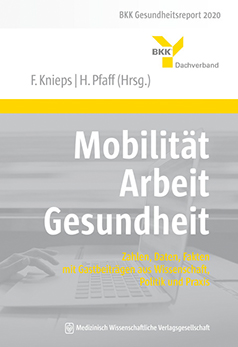
- Pfaff, H.; Zeike, S. (2019): Controlling im Betrieblichen Gesundheitsmanagement: Das 7-Schritte Modell. Wiesbaden: Gabler Verlag. DOI: 10.1007/978-3-658-16525-3.

- Knieps, F.; Pfaff, H. (Hrsg.) (2019): BKK Gesundheitsreport 2019. Psychische Gesundheit und Arbeit. Zahlen, Daten, Fakten – mit Gastbeiträgen aus Wissenschaft, Politik und Praxis. BKK Gesundheitsreport 2019. Berlin: Medizinisch Wissenschaftliche Verlagsgesellschaft.
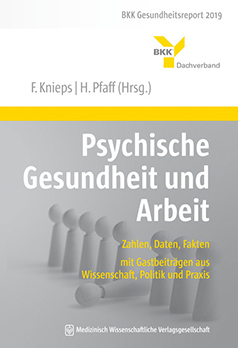
- Pfaff, H.; Zeike, S.; Lindert, L. (2019): Evidenzbasierte psychische Gefährdungsbeurteilung – Prinzipien und Instrumente für Entscheider in der betrieblichen Praxis. Springer
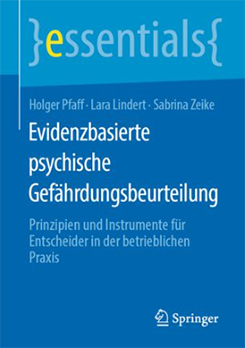
- Knieps, F.; Pfaff, H. (Hrsg.) (2018): Arbeit und Gesundheit Generation 50+. Zahlen, Daten, Fakten mit Gastbeiträgen aus Wissenschaft, Politik und Praxis. Berlin: Medizinisch Wissenschaftliche Verlagsgesellschaft.
- Knieps, F.; Pfaff, H. (Hrsg.) (2017): BKK Gesundheitsreport 2017. Digitale Arbeit- Digitale Gesundheit. Zahlen, Daten, Fakten mit Gastbeiträgen aus Wissenschaft, Politik und Praxis. Berlin: Medizinisch Wissenschaftliche Verlagsgesellschaft.
- Pfaff, Holger.; Neugebauer, Edmund A. M.; Glaeske, Gerd; Schrappe, Matthias (2017): Lehrbuch Versorgungsforschung. Systematik – Methodik – Anwendung. Stuttgard: Schattauer. 2., vollständig überarbeitete Auflage.
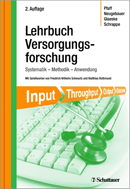
- Knieps, F., Pfaff, H. (Hrsg.): Gesundheit und Arbeit: Zahlen, Daten, Fakten – mit Gastbeiträgen aus Wissenschaft ; BKK-Gesundheitsreport 2016. Berlin: Medizinisch Wiss. Verl.-Ges.; 2016.
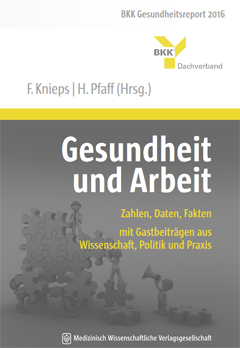
- Knieps, F., Pfaff, H. (Hrsg.): Langzeiterkrankungen: Zahlen, Daten, Fakten – Zahlen, Daten, Fakten – mit Gastbeiträgen aus Wissenschaft ; BKK-Gesundheitsreport 2015. Berlin: Medizinisch Wiss. Verl.-Ges.; 2015.
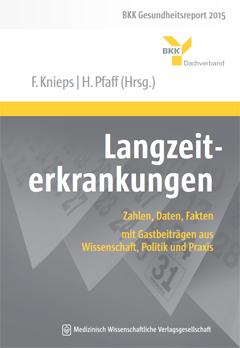
- Dederich, M., Beck, I., Antor, G., & Bleidick, U. (Eds.). (2015). Handlexikon der Behindertenpädagogik: Schlüsselbegriffe aus Theorie und Praxis (3., erweiterte und überarbeitete Auflage). Stuttgart: Kohlhammer.
- Nationale Akademie der Wissenschaften Leopoldina (Hg.) (2015): Palliativversorgung in Deutschland. Perspektiven für Praxis und Forschung. Stellungnahme. 1. Auflage. Halle an der Saale.
- Nationale Akademie der Wissenschaften Leopoldina (Hg.) (2015): Palliativversorgung in Deutschland. Perspektiven für Praxis und Forschung. Kurzfassung der Stellungnahme. 1. Auflage. Halle an der Saale.
- Knieps, F., Pfaff, H. (Hrsg.): Gesundheit in Regionen : Zahlen, Daten, Fakten ; BKK Gesundheitsreport 2014. Berlin: Medizinisch Wiss. Verl.-Ges.; 2014.
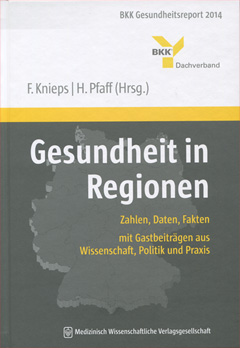
- Fuß, S., Karbach, U.: Grundlagen der Transkription : Eine praktische Einführung. Opladen: Budrich ; 2014.

- Karbach, U.: Management von Organisationen und Personal im Gesundheitswesen: Versorgungsforschung ; Innovative Versorgungskonzepte. Hamburg: Hamburger Fern-Hochschule ; 2014.
- Ansmann, L.: Die Arzt‐Patient Interaktion und der Kontext Krankenhaus : Untersuchungen zu sozialer Unterstützung durch Ärzte in der Versorgung von Brustkrebspatienten. Köln: Universität zu Köln ; 2014.
- Lehner, B. S.: Work Engagement als Indikator gesundheitlichen Wohlbefindens: Die Rolle sozialer Ressourcen in unterschiedlichen beruflichen Settings. Köln: Universität zu Köln ; 2014.
- Anders, B.: Direkte, indirekte und intangible Kosten nach einem schweren Trauma bis zur beruflichen Wiedereingliederung – eine empirische Analyse von 113 schwer verletzten Patienten. Köln: Universität zu Köln ; 2014.
- Schmidt, A.: Gesund trotz Rauchen? Psychosoziale Risiko- und Schutzfaktoren zur enstehung von Myokardinfarkten und Bronchialkarzinom bei Rauchern und Ex-Rauchern. Köln: Universität zu Köln ; 2013.
- Nitzsche, A.: Work-Life-Balance und Gesundheit – Hat das Zusammenspiel von Erwerbsarbeit und Privatleben einen Einfluss auf emotionale Erschöpfung und depressive Symptome bei Beschäftigten? Köln: Universität zu Köln ; 2013.
- Nitzsche, A.: Work-Life-Balance: Ein Wettbewerbsvorteil für KMU. Dortmund: IVAM e.V. ; 2013.
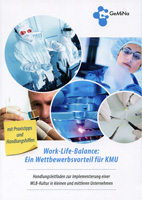
- Thüm, S.: Der Zusammenhang zwischen Vertrauen und psychosozialer Versorgung durch Ärzte. Köln: Universität zu Köln ; 2013.
- Hammer, A.: Zur Messung von Sicherheitskultur in deutschen Krankenhäusern. Köln: Universität zu Köln ; 2012.
- Ernstmann, N.: Interaktion und Organisation als Gegenstand der Versorgungsforschung. Köln: Universität zu Köln ; 2011.
- Jung, J.: Präventive Versorgung zur Raucherentwöhnung durch Primärärzte – Entwicklung eines Erhebungsinstrumentes zur patientenbasierten Erfassung der Versorgungssituation -. Köln: Universität zu Köln ; 2011.
- Köhler, T.: Betriebliche Gesundheitsförderung, Betriebliches Gesundheitsmanagement und Innovationsklima : eine Organisationsanalyse bei deutschen Banken und Versicherungen. Köln: Universität zu Köln ; 2011.
- Pfaff, H., Neugebauer, E. A. M., Glaeske, G., Schrappe, M. (Hrsg.): Lehrbuch Versorgungsforschung : Systematik – Methodik – Anwendung. Stuttgart: Schattauer; 2011.
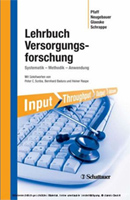
- Kowalski, C.: Vertrauen, Sozialkapital und Gesundheit : Untersuchungen zu den Determinanten von Vertrauen und dem Zusammenhang zwischen Sozialkapital und emotionaler Erschöpfung. Köln: Universität zu Köln ; 2010.
- Raspe, H., Pfaff, H., Härter, M., Hart, D., Koch-Gromus, U., Schwartz, F. W., Siegrist, J., Wittchen, H.-U., Wissing, F.: Versorgungsforschung in Deutschland: Stand, Perspektiven, Förderung : Stellungnahme ; Standpunkte. Weinheim: Wiley-VCH 2010.

- Karbach, U.: Medizinische Leitlinien: Ärztliche Deutungsmuster und Leitlinienkonformität – Eine Annäherung. Berlin: LIT-Verl.; 2010.
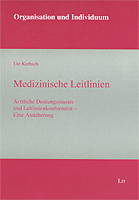
- Driller, E., Karbach, U., Stemmer, P., Gaden, U., Pfaff, H., Schulz-Nieswandt, F.: Ambient Assisted Living: Technische Assistenz für Menschen mit Behinderung. Freiburg, Breisgau: Lambertus; 2009.
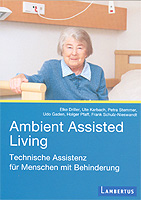
- Driller, E., Alich, S., Karbach, U., Pfaff, H., Schulz-Nieswandt, F.: Die INA-Studie: Inanspruchnahme, soziales Netzwerk und Alter am Beispiel von Angeboten der Behindertenhilfe. Freiburg, Breisgau: Lambertus; 2008.
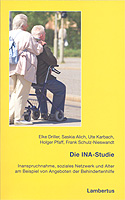
- Pfaff, H., Plath, S.-C., Köhler, T., Krause, H.: Gesundheitsförderung im Finanzdienstleistungssektor: Prävention und Gesundmanagement bei Banken und Versicherung. Berlin: Edition Sigma; 2008.

- Schmidt, A.: Berufliche Gratifikationskrisen und Nikotinabhängigkeit: Gibt es einen Zusammenhang? Saarbrücken: VDM-Verl. Dr. Müller.; 2008.
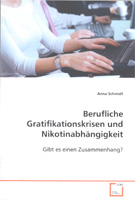
- Hammer, A.: Medizinische Soziologie als interdisziplinäre Wissenschaft vor dem Hintergrund des soziodemographischen Wandels. Saarbrücken: VDM-Verl. Dr. Müller; 2008.
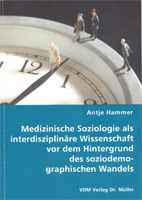
- Ernstmann, N.: Determinanten der subjektiven Nutzenbewertung der elektronischen Gesundheitskarte und des elektronischen Rezepts. Berlin: LIT-Verl.; 2008.
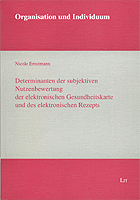
- Driller, E.: Burnout in helfenden Berufen: Eine Darstellung am Beispiel pädagogisch tätiger Mitarbeiter der Behindertenhilfe. Münster: LIT-Verl.; 2008.
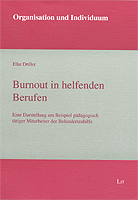
- Löffert, S.: Psychometrische Überprüfung der Messung von moralischer Urteilsfähigkeit: Grundlagen und Anwendung. Saarbrücken: VDM-Verl. Dr. Müller; 2007.
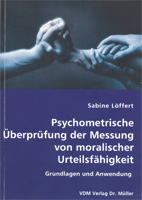
- Ernstmann, N.: Externer Vergleich der Ergebnisqualität stationärer Depressionstherapie: Grundlagen und Anwendung. Saarbrücken: VDM-Verl. Dr. Müller; 2007.
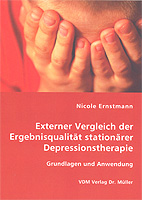
Publications (Book contributions)
- Pfaff, H. & Schubin, K. (2021). Zukünftige Gesundheitsrisiken: Was kommt auf die Gesellschaft zu? In B. Badura, A. Ducki, H. Schröder & M. Meyer (Hrsg.), Fehlzeiten-Report: Bd. 2021. Fehlzeiten-Report 2021: Betriebliche Prävention stärken – Lehren aus der Pandemie (1. Aufl., S. 43–63). Springer. https://doi.org/10.1007/978-3-662-63722-7_4
- Hildebrandt, H., Bahrs, O., Borchers, U., Glaeske, G., Griewing, B., Härter, M., Hanneken, J., Hilbert, J., Klapper, B., Klitzsch, W., Köster-Steinebach, I., Kurscheid, C., Lodwig, V., Pfaff, H., Schaeffer, D., Sturm, H., Schrappe, M., Wehkamp, K.‑H. & Wild, D. (2021). Integrierte Versorgung – jetzt! In H. Hildebrandt, R. Stuppardt & B. Augurzky (Hrsg.), Gesundheitswesen in der Praxis. Zukunft Gesundheit – regional, vernetzt, patientenorientiert (S. 1–2). medhochzwei Verlag.
- Hower, K., Pförtner, T.‑K., Pfaff, H., Wensing, M. & Ansmann, L. (2021). Innovationen im Gesundheitswesen. In B. Blättel-Mink, I. Schulz-Schaeffer & A. Windeler (Hrsg.), Handbuch Innovationsforschung (1. Aufl., S. 629–648). Springer Fachmedien Wiesbaden GmbH. https://doi.org/10.1007/978-3-658-17668-6_43
- Pfaff H., Schubin K. (2021). Zukünftige Gesundheitsrisiken: Was kommt auf die Gesellschaft zu?. In B. Badura, A. Ducki, H. Schröder, M. Meyer (Hrsg.). Fehlzeiten-Report 2021. Springer, Berlin, Heidelberg.https://doi.org/10.1007/978-3-662-63722-7_4
- Hower, K. & Winter, W. (2021). Pandemiebedingte Herausforderungen in der Pflege – Ansätze für die Betriebliche Gesundheitsförderung. In B. Badura, A. Ducki, H. Schröder & M. Meyer (Hrsg.), Fehlzeiten-Report: Bd. 2021. Fehlzeiten-Report 2021: Betriebliche Prävention stärken – Lehren aus der Pandemie (1. Aufl., S. 379–396). Springer. https://doi.org/10.1007/978-3-662-63722-7_23
- Demirer, I., Scholten, N., & Stöcker, A. (2020). Sektorenübergreifende Arzneimitteltherapie aus Patientensicht. In D. Grandt, V. Lappe & I. Schubert (Hrsg.), Barmer Arzneimittelreport 2020. Sektorenübergreifende Arzneimittelherapie (S. 86-104).
- Pförtner, T.-K. & Pfaff, H. (2020). 3.3.2. Arztrolle. In R. Deinzer & O. von dem Knesebeck (Hrsg.), Online Lehrbuch der Medizinischen Psychologie und Medizinischen Soziologie. German Medical Science GMS Publishing House. https://doi.org/10.5680/olmps000021
- Wensing, Michel; Pfaff, H.; Grol, R.: Health System Strategies for Implementation. In: Wensing, Michel; Grol, R.; Grimshaw, J.(Hrsg.): Improving Patient Care: The implementation of change in health care. Wiley-Blackwell.
- Dresen, Antje; Baumann, Walter: 3.3.1. Ärztliche Berufstätigkeit. In: Deinzer R., von dem Knesebeck O, editors. Online Lehrbuch der Medizinischen Psychologie und Medizinischen Soziologie. Berlin: German Medical Science GMS Publishing House; 2018-. DOI: 10.5680/olmps000057
- Pfaff H., Lindert L., Zeike S. (2020) Einleitung. In: Evidenzbasierte psychische Gefährdungsbeurteilung. essentials. Springer, Wiesbaden: S. 1-3.
- Pfaff H., Lindert L., Zeike S. (2020) Gesetzlicher Hintergrund. In: Evidenzbasierte psychische Gefährdungsbeurteilung. essentials. Springer, Wiesbaden: S. 5-6.
- Pfaff H., Lindert L., Zeike S. (2020) Theoretischer Rahmen für die evidenzbasierte psychische Gefährdungsbeurteilung. In: Evidenzbasierte psychische Gefährdungsbeurteilung. essentials. Springer, Wiesbaden: S. 7-8.
- Pfaff H., Lindert L., Zeike S. (2020) Die Methode der evidenzbasierten psychischen Gefährdungsbeurteilung. In: Evidenzbasierte psychische Gefährdungsbeurteilung. essentials. Springer, Wiesbaden: S. 9-29.
- Pfaff H., Lindert L., Zeike S. (2020) Das MIKE-Instrumentarium. In: Evidenzbasierte psychische Gefährdungsbeurteilung. essentials. Springer, Wiesbaden: S. 31-34.
- Pfaff H., Lindert L., Zeike S. (2020) Zusammenfassung. In: Evidenzbasierte psychische Gefährdungsbeurteilung. essentials. Springer, Wiesbaden: S.35-35.
- Pfaff, H. (2020): 3.3. Ärztliches Handeln und das Gesundheitssystem. In: Deinzer, R.; von dem Knesebeck, O. (Hrsg.): Online Lehrbuch der Medizinischen Psychologie und Medizinischen Soziologie. Berlin: German Medical Science GMS Publishing House; 2018-. DOI: 10.5680/olmps000051.
- Groß, S.; Pfaff, H.: 3.3.3. Arbeitsbedingungen von Ärzten. In: Deinzer, R.; von dem Knesebeck, O. (Hrsg.): Online Lehrbuch der Medizinischen Psychologie und Medizinischen Soziologie. Berlin: German Medical Science GMS Publishing House; 2018-. DOI: 10.5680/olmps000054.
- Pfaff, H.; Zeike, S. (2019): Psychische Gesundheit und Arbeit: Ein Überblick. In: Knieps, F.; Pfaff, H. (Hrsg.): BKK Gesundheitsreport 2019: Psychische Gesundheit und Arbeit. Zahlen, Daten, Fakten mit Gastbeiträgen aus Wissenschaft, Politik und Praxis. Berlin: MWV Medizinisch Wissenschaftliche Verlagsgesellschaft.
- Hower, K.; Pförtner, T.; Pfaff, H.; Wensing, M.; Ansmann, L. (2019): Innovationen im Gesundheitswesen. In: Blättel-Mink, Schulz-Schaeffer et al. (Hg.) 2019 – Handbuch Innovationsforschung. Springer Fachmedien Wiesbaden.
- Pfaff, H.; Karbach, U.; Dittmer, K. (2019): Kommunikationswandel im digitalen Krankenhaus. In: Elmer, A.; Matusiewicz, D.; Althammer, T.: Die digitale Transformation der Pflege. Wandel. Innovation. Smart Services. Berlin: Medizinisch Wissenschaftliche Verlagsgesellschaft. 1. Auflage.
- Hower, K.; Şahin, C.; Stock, S.; Pfaff, H. (2019): Medizinisch-pflegerische Versorgung älterer Menschen in Deutschland. In: Hank, K.; Schulz-Nieswandt, F.; Wagner, M.: Alternsforschung. Handbuch für Wissenschaft und Praxis. Baden-Baden: Nomos Verlagsgesellschaft. 1. Auflage. S. 285–312.
- Pfaff, H.; Zeike, S. (2018): Arbeit und Gesundheit in der Generation 50+: Ein Überblick. In: Knieps, F.; Pfaff, H. (Hrsg.): „Arbeit und Gesundheit in der Generation 50+“.BKK Gesundheitsreport 2018. Zahlen, Daten, Fakten mit Gastbeiträgen aus Wissenschaft, Politik und Praxis. Berlin: MWV Medizinisch Wissenschaftliche Verlagsgesellschaft.
- Nowak, M.; Karbach, U.; Pfaff, H. (2018): Entlassmanagement im internationalen Kontext. In: Eble, S.; Miedke, J.; Khan, N. (Hrsg.): Entlassmanagement. Konzepte, Methoden, Umsetzung. Berlin: MWV Medizinisch Wissenschaftliche Verlagsgesellschaft. 1. Auflage. S. 65-72.
- Pfaff, H.; Zeike, S. (2017): Digitalisierung von Arbeit und Gesundheit: Ein Überblick. In: Knieps, F.; Pfaff, H. (Hrsg.): „Digitale Arbeit-Digitale Gesundheit“. BKK Gesundheitsreport 2017. Zahlen, Daten, Fakten mit Gastbeiträgen aus Wissenschaft, Politik und Praxis. Berlin: MWV Medizinisch Wissenschaftliche Verlagsgesellschaft.
- Groene, O.; Pfaff, H.; Hildebrandt, H. (2017): Scaling up a population-based integrated healthcare system: The case of “ Healthy Kinzigtal” in Germany. In: Braithwaite, J.; Mannion, R.; Matsuyama, Y.; Shekelle, P.; Whittaker, S.; Al-Adawi, S.: Health Systems Improvement Across the Globe. Success Stories from 60 Countries. London: CRC Press.
- Pfaff, H., Zeike, S.: Digitalisierung von Arbeit und Gesundheit: ein Überblick. In: Knieps, F., Pfaff, H. (Hrsg.): Digitale Arbeit- Digitale Gesundheit. Zahlen, Daten, Fakten mit Gastbeiträgen aus Wissenschaft, Politik und Praxis. Berlin: Medizinisch Wissenschaftliche Verlagsgesellschaft: S. 25–31.
- Pfaff, H.; Dierks, M.-L. (2017): Der Innovationsfonds aus Sicht des Expertenbeirats. In: Volker Eric Amelung, Susanne Eble, Helmut Hildebrandt, Franz Knieps, Ralph Lägel, Susanne Ozegowski et al. (Hg.): Innovationsfonds: Impulse für das deutsche Gesundheitssystem. Berlin: MWV Medizinisch Wissenschaftliche Verlagsgesellschaft 2017;1. Auflage, neue Ausgabe: S. 49 – 54.
- Zirves, M.; Scholemann, P. (2017): Eine Dialogwerkstatt in der Politischen Theorie und Ideengeschichte: Ein Erfahrungsbericht. In: Berendt, B.; Fleischmann, A.; Schaper, N.; Szczyrba, B.; Wildt, J.: Neues Handbuch Hochschullehre. Berlin: DUZ Verlags- und Medienhaus GmbH. S. 35-57.
- Moormann, T.; Bothe, P.; Huber, M. (2017): BGM-innovativ – Arbeitsplatznahes, trägerübergreifendes Versorgungsmanagement der Betriebskrankenkassen. In: Volker Eric Amelung, Susanne Eble, Helmut Hildebrandt, Franz Knieps, Ralph Lägel, Susanne Ozegowski et al. (Hg.): Innovationsfonds: Impulse für das deutsche Gesundheitssystem. Berlin: MWV Medizinisch Wissenschaftliche Verlagsgesellschaft, 2017; 1. Auflage, neue Ausgabe: S. 272 – 278.
- Pfaff, H.; Zeike, S. (2016): Gesundheit und Arbeit: Ein Überblick. In: Knieps, F.; Pfaff, H. (Hrsg.): „Gesundheit und Arbeit“. BKK Gesundheitsreport 2016. Zahlen, Daten, Fakten mit Gastbeiträgen aus Wissenschaft, Politik und Praxis. Berlin: MWV Medizinisch Wissenschaftliche Verlagsgesellschaft.
- Pfaff, H.; Pförtner, T.-K. (2016): Gesundheitssystemgestaltung, Versorgungsgestaltung und Versorgungsentwicklung. In: Richter, M.; Hurrelmann, K. (Hg.): Soziologie von Gesundheit und Krankheit. 1. Auflage. Wiesbaden: Springer Fachmedien Wiesbaden. S. 327–340.
- Pfaff H, Karbach U: Sozialepidemiologie. In: Dederich M, Beck I, Antor G, Bleidick U (Hrsg.): Handlexikon der Behindertenpädagogik: Schlüsselbegriffe aus Theorie und Praxis, 3. Aufl. Stuttgart: Kohlhammer 2016; 482–483.
- Pfaff H, Karbach U: Sozialmedizin. In: Dederich M, Beck I, Antor G, Bleidick U (Hrsg.): Handlexikon der Behindertenpädagogik: Schlüsselbegriffe aus Theorie und Praxis, 3. Aufl. Stuttgart: Kohlhammer 2016; 484–485.
- Pfaff, H., Zeike, S.: Gesundheit und Arbeit: ein Überblick. In: Knieps, F., Pfaff, H. (Hrsg.): Gesundheit und Arbeit: Zahlen, Daten, Fakten : BKK Gesundheitsreport 2016. Berlin: Medizinisch Wiss. Verl.-Ges.: S. 25–31.
- Ernstmann, N., Gloede, T. D., Pfaff, H.: Das Versorgungssystem für Krebskranke in Deutschland. In: Mehnert, A. (Hrsg.): Handbuch Psychoonkologie. Göttingen: Hogrefe; 2016: S. 86-93.
- Chenot, Regine; Stock, Johannes; Broge, Björn; Engeser, Peter; Szecsenyi, Joachim (2012): QISA: Das Qualitätsindikatorensystem für die ambulante Versorgung – Das Beispiel Palliativversorgung in der Hausarztpraxis. In: Christian Günster, Joachim Klose und Norbert Schmacke: Versorgungs-Report 2012. Schwerpunkt: Gesundheit im Alter. Hg. v. Christian Günster, Joachim Klose und Norbert Schmacke. Stuttgart: Schattauer, S. 303–312.
- Pfaff, H., Zeike, S.: Langzeiterkrankungen: ein Überblick. In: Knieps, F. (Hrsg.): Langzeiterkrankungen: Zahlen, Daten, Fakten : BKK Gesundheitsreport 2015. Berlin: Medizinisch Wiss. Verl.-Ges.: S. 17–23.
- Karbach, U.: 5.5.5 Gesellschaftliche Einflüsse auf Gesundheit und Krankheit: Individuum und Gesellschaft. In: Baumgärtel, F., Al-Abtah, J.: I care – Pflege. Stuttgart: Thieme, 2016: S. 112-114.
- Ernstmann, N.: 5.5.4 Individuelle Einflüsse auf Gesundheit und Krankheit: Gesundheitsverhalten. In: Baumgärtel, F., Al-Abtah, J.: I care – Pflege. Stuttgart: Thieme, 2016: S. 108–111.
- Karbach, U.: 5.5.2 Pathogenese und Salutogenese. In: Baumgärtel, F., Al-Abtah, J.: I care – Pflege. Stuttgart: Thieme, 2016: S. 104–105.
- Karbach, U.: 5.5.1 Gesundheit und Wohlbefinden. In: Baumgärtel, F., Al-Abtah, J.: I care – Pflege. Stuttgart: Thieme, 2016: S. 103.
- Pfaff, H. (2015). Betriebliches Gesundheits- und Versorgungs-Management (BGVM): eine Zukunftsaufgabe. In: C. Trittin (Hrsg.), Gesundheitsanalyse: Vol. 35. Versorgungsforschung. zwischen Routinedaten, Qualitätssicherung und Patientenorientierung (pp. 273–280). Siegburg: Asgard Verlagsservice GmbH.
- Nitzsche, Anika; Kramer, Julia (2015): Förderung der Work-Life-Balance-Kultur – Ein Thema der Betrieblichen Gesundheitsförderung am Beispiel einer High-Tech-Industrie. In: Bernhard Badura, Antje Ducki, Helmut Schröder, Joachim Klose und Markus Meyer (Hg.): Fehlzeiten-Report 2015. Neue Wege für mehr Gesundheit – Qualitätsstandards für ein zielgruppenspezifisches Gesundheitsmanagement. Aufl. 2016. Berlin: Springer Berlin (Fehlzeiten-Report, 2015), S. 97–104.
- Pfaff, H., Scholten, N.: Regionale Versorgungsungleichheit: ein konzeptioneller Überblick. In: Knieps, F., Pfaff, H. (Hrsg.): Gesundheit in Regionen : Zahlen, Daten, Fakten ; BKK Gesundheitsreport 2014. Berlin: Medizinisch Wiss. Verl.-Ges.; 2014: S. 23–30.
- Stock, S., Gloede, T.,Müller, D., Pfaff, H., Ernstmann, N.: Schnittstelle Gesundheitsökonomie und Versorgungsforschung – zwischen Effizienz und Effektivität. In: Matusiewicz, D. (Hrsg.): Gesundheitsökonomie. Bestandsaufnahme und Entwicklungsperspektiven. Berlin: Duncker & Humblot; 2014: S. 187–209.
- Kowalski, C., Nitzsche, A., Hollmann, D., Pfaff, H.: Führt die betriebliche Fehlzeitenregelung zu unnötigen Arztbesuchen? In: Böcken, J. (Hrsg.): Gesundheitsmonitor 2014 : Bürgerorientierung im Gesundheitswesen, Kooperationsprojekt der Bertelsmann Stiftung und der BARMER GEK. Gütersloh: Verl. Bertelsmann Stiftung; 2014: S. 176-190.
- Hammer, A., Karbach, U., Scholten, N., Pfaff, H.: Sozialkapital und Patientensicherheit aus Sicht ärztlicher Direktoren – Ergebnisse einer deutschlandweiten Befragung. In: Klauber, J. (Hrsg.): Krankenhaus-Report 2014 : Schwerpunkt: Patientensicherheit. Stuttgart: Schattauer; 2014: S. 69-77.
- Ernstmann, N.: Versorgungsforschung. In: Wirtz, M. A. (Hrsg.): Dorsch – Lexikon der Psychologie. 16. Aufl. Bern: Huber; 2013: 1635-1636.
- Pfaff, H.: Optionsstress und Zeitdruck. In: Bundesanstalt für Arbeitsschutz und Arbeitsmedizin (Hrsg.): Immer schneller, immer mehr : Psychische Belastung bei Wissens- und Dienstleistungsarbeit. Wiesbaden: Springer VS; 2013: 113-143.
- Pfaff, H., Kowalski, C.: “Präventionspfade” zwischen Betriebs- und Hausarzt: Das ÄrBeK-Projekt. In: Burger,S. (Hrsg.): Alter und Multimorbidität – Herausforderungen an die Gesundheitsversorgung und die Arbeitswelt. Heidelberg: Medhochzwei-Verl.; 2013: 261-272.
- Pfaff, H.: Rehabilitationskompetenz und Beschäftigungsfähigkeit: Die Sicht der rehabilitativen Versorgungsforschung. In: Deutsche Rentenversicherung Bund (Hrsg.): Rehabilitation sichert Beschäftigungsfähigkeit : Reha-Forum der Deutschen Rentenversicherung Bund 10. und 11 Oktober in Berlin ; Medizinisch-beruflich orientierte Rehabilitation – MBOR. Berlin: Deutsche Rentenversicherung Bund; 2013: S. 63-79.
- Pfaff, H., Bentz, J., Ommen, O., Ernstmann, N.: Qualitative und quantitative Methoden der Datengewinnung. In: Schwartz, F. W.; Walter, U.; Siegrist, J.; Kolip, P.; Leidl, R.; Dierks, M. L.; Busse, R.; Schneider, N. (Hrsg.): Public Health : Gesundheit und Gesundheitswesen. München: Urban & Fischer; 2012. S. 451-467.
- Pfaff, H.: Erholungsfähigkeit sichern: Das Konzept der Input-Kontrolle. In: Schröder, J., Schmidt, A.: Themenband X – 10. BGF-Symposium: Den Akku wieder aufladen – Regenerationsfähigkeit in der Arbeitswelt von morgen. Köln: BGF Institut für Betriebliche Gesundheitsförderung; 2012: S. 11-29.
- Pfaff, H., Gloede, T., Driller, E.: Warum sind Beschäftigte in den Sozialberufen häufiger psychisch krank? In: Schröder, J., Schmidt, A. (Hrsg.): 9. BGF-Symposium : Psychische Erkrankungen ; Betriebliche Ursachen und Maßnahmen. Köln: BGF Institut für Betriebliche Gesundheitsförderung; 2012. S. 27-41.
- Pfaff, H., Driller, E.: Organisationsentwicklung. In Hensen, G., Hensen, P. (Hrsg.): Gesundheits- und Sozialmanagement : Leitbegriffe und Grundlagen modernen Managements. Stuttgart: Kohlhammer; 2012. S. 195-207.
- Stieler-Lorenz,B., Jung, J., Pfaff, H.: Gesundheitsförderliche Prozessoptimierung zur Reduzierung psychischer Beanspruchungen/Stress in der ITK-Branche – Konsequenzen für die Führung. In: Badura, B., Ducki, A., Schröder, H., Klose, J., Macco, K. (Hrsg.): Fehlzeiten-Report 2011 : Führung und Gesundheit ; Zahlen, Daten, Analysen aus allen Branchen der Wirtschaft. Berlin: Springer; 2011. S. 159-168.
- Pfaff, H.: Flexibilität und Sicherheit – Herausforderungen für das Personal. In: Lucas, T.-M., Frese, F. (Hrsg.): Personal & Entwicklung : Dokumentation 8. Kongress der JG-Gruppe 26. und 27. November 2010. Köln: Josefs-Gesellschaft; 2011. S. 18-26.
- Driller, E.: Burnout – Definition und Verbreitung. In: Lucas, T.-M., Frese, F. (Hrsg.): Personal & Entwicklung : Dokumentation 8. Kongress der JG-Gruppe 26. und 27. November 2010. Köln: Josefs-Gesellschaft; 2011. S. 27-31.
- Pfaff, H., Ernstmann, N., Driller, E., Karbach, U., Kowalski, C., Jung, J., Nitzsche, A., Ommen, O.: Veränderungsresistent oder durch Veränderungen resistent geworden? In: Kowalski, H. (Hrsg.): Veränderungen ökonomisch erfolgreich und gesund gestalten. Köln: BGF Institut für Betriebliche Gesundheitsförderung; 2011. S. 11-26.
- Pfaff, H., Ernstmann, N., Driller, E., Jung, J., Karbach, U., Kowalski, C., Nitzsche, A., Ommen, O.: Elemente einer Theorie der sozialen Gesundheit. In: Schott,T., Hornberg, C (Hrsg.): Die Gesellschaft und ihre Gesundheit : 20 Jahre Public Health in Deutschland: Bilanz und Ausblick einer Wissenschaft. Wiesbaden: VS, Verl. für Sozialwiss; 2011. S. 39-68.
- Pfaff, H., Schrappe, M.: Einführung in die Versorgungsforschung. In: Pfaff, H., Neugebauer, E. A. M., Glaeske, G., Schrappe, M. (Hrsg.): Lehrbuch Versorgungsforschung : Systematik – Methodik – Anwendung. Stuttgart: Schattauer; 2011. S. 1-39.
- Steinhausen, S., Ommen, O., Kowalski, C., Pfaff,H.: Arzt-Patient-Kommunikation. In: Pfaff, H., Neugebauer, E. A. M., Glaeske, G., Schrappe, M. (Hrsg.): Lehrbuch Versorgungsforschung : Systematik – Methodik – Anwendung. Stuttgart: Schattauer; 2011. S. 49-52.
- Kowalski, C., Ommen, O., Steinhausen, S., Pfaff, H.: PRO: Patientenzufriedenheit und ihre Determinanten. In: Pfaff, H., Neugebauer, E. A. M., Glaeske, G., Schrappe, M. (Hrsg.): Lehrbuch Versorgungsforschung : Systematik – Methodik – Anwendung. Stuttgart: Schattauer; 2011. S. 68-71.
- Ernstmann, N., Ommen, O., Pfaff, H.: Patientenbefragung. In: Pfaff, H., Neugebauer, E. A. M., Glaeske, G., Schrappe, M. (Hrsg.): Lehrbuch Versorgungsforschung : Systematik – Methodik – Anwendung. Stuttgart: Schattauer; 2011. S. 72-75.
- Ernstmann, N., Driller, E., Karbach, U., Bartholomeyczik, S., Pfaff, H.: Menschen mit Behinderung. In: Pfaff, H., Neugebauer, E. A. M., Glaeske, G., Schrappe, M. (Hrsg.): Lehrbuch Versorgungsforschung : Systematik – Methodik – Anwendung. Stuttgart: Schattauer; 2011. S. 236-240.
- Wirtz, M., Albert, U. S., Bornemann, R., Ernstmann, N., Höhmann, U., Ommen, O., Pfaff, H.: Versorgungsnahe Organisationsforschung. In: Pfaff, H., Neugebauer, E. A. M., Glaeske, G., Schrappe, M. (Hrsg.): Lehrbuch Versorgungsforschung : Systematik – Methodik – Anwendung. Stuttgart: Schattauer; 2011. S. 284-289.
- Pfaff, H., Nellessen-Martens, G.: Klinische Fachgebiete: Einführung. In: Pfaff, H., Neugebauer, E. A. M., Glaeske, G., Schrappe, M. (Hrsg.): Lehrbuch Versorgungsforschung : Systematik – Methodik – Anwendung. Stuttgart: Schattauer; 2011. S. 330-331.
- Pfaff, H., Driller, E.: Burnout in helfenden Berufen – am Beispiel pädagogisch tätiger Mitarbeiterinnen und Mitarbeiter der Behindertenhilfe. In: Niehaus, M., Bergedick, A., Zillken, U. (Hrsg.): Behinderung und Alter – “Älter werdende Mitarbeiterschaft in Alten- und Behinderteneinrichtungen” : Vorträge und Workshops der 18. Fachtagung “Behinderung und Alter” 2009 an der Humanwissenschaftlichen Fakultät der Universität Köln. Köln: Kuratorium Deutsche Altershilfe; 2010. S. 79-103.
- Pfaff, H., Jung, J., Kowalski, C., Nitzsche, A.: Zustands- und Zusammenhangskennzahlen für ein schlankes betriebliches Gesundheitsmanagement. In: Kastner, M. (Hrsg.): Leistungs- und Gesundheitsmanagement – psychische Belastung und Altern, inhaltliche und ökonomische Evaluation : Tagungsband zum 8. Dortmunder Personalforum. Lengerich: Pabst Science Publishers; 2010. S. 135-150.
- Jung, J., Nitzsche, A., Pfaff, H.: Diagnostik der Präventionsreife in Unternehmen der deutschen ITK-Branche – Das Teilprojekt PräDiag des Verbundprojektes PräKoNet. In Gatermann, I., Fleck, M. (Hrsg.): Innovationsfähigkeit sichert Zukunft: Beiträge zum 2 Zukunftsforum Innovationsfähigkeit des BMBF. Berlin: Duncker & Humblot; 2010. S. 217-221.
- Jung, J., Nitzsche, A., Pfaff, H.: Das Konzept “Gesundheitsförderungsreife” und dessen Anwendung in wissensbasierten Unternehmen. In: Becke, G., Klatt, R., Schmidt, B., Stieler-Lorenz, B., Uske, H. (Hrsg.): Innovation durch Prävention : Gesundheitsförderliche Gestaltung von Wissensarbeit. Bremerhaven: Wirtschaftsverlag NW; 2010. S. 251-270.
- Steinhausen, S., Pfaff, H., Janßen, C., Thüm, S., Neugebauer, E., Lefering, R., Ommen, O.: Arzt und Patient in der Begegnung – Wie Kommunikationsschulungen dazu beitragen können, die Arzt-Patienten-Interaktion zu verbessern und das Vertrauen zu erhöhen. In: Witt, C. (Hrsg.): Der gute Arzt aus interdisziplinärer Sicht : Ergebnisse eines Expertentreffens. Essen: KVC-Verl.; 2010. S. 207-230.
- Jung, J., Kowalski C., Pfaff H.: Betriebliches Gesundheitsmanagement und alternde Belegschaften – eine Untersuchung in der deutschen Informationstechnologie und Kommunikations- (ITK-)Branche. In: Badura, B., Schröder, H., Klose, J., Macco, K. (Hrsg.): Fehlzeiten-Report 2010 : Vielfalt managen: Gesundheit fördern – Potenziale nutzen ; Zahlen, Daten, Analysen aus allen Branchen der Wirtschaft. Heidelberg: Springer; 2010. S. 175-182.
- Jung, J.; Neumann, M.; Ernstmann, N.; Wirtz, M.; Staratschek-Jox, A.; Wolf, J.; Pfaff, H.: „SmoCess-GP” (Smoking Cessation Interventions by General Practitioniers) – ein Messinstrument zur patienten-basierten Erfassung der primärärztlichen Versorgung zur Raucherentwöhnung. In: Kirch, W.; Middeke, M.; Rychlik, R. (Hrsg.): Aspekte der Prävention. Stuttgart: Thieme; 2010. S. 30-38.
- Pfaff, H., Ommen, O., Ernstmann, N., Schrappe, M.: Versorgungsforschung. In: Lauterbach, K. W.; Lüngen, M.; Schrappe, M. (Hrsg.): Gesundheitsökonomie, Management und Evidence-based Medicine: Handbuch für Praxis, Politik und Studium. Stuttgart: Schattauer; 2010. S. 20-25.
- Nitzsche, A.; Driller, E.; Kowalski, C.; Pfaff, H.: Organisationskrankheit Burnout. In: Badura, B.; Walter, U.; Hehlmann, T. (Hrsg.): Betriebliche Gesundheitspolitik: Der Weg zur gesunden Organisation. Berlin: Springer; 2010. S. 389-409.
Publications (Series of publications)
- Krieger T., Salm S., Cecon N., Pfaff H., Dresen A.: Ergebnisbericht der zweiten externen formativen Evaluation des Projekts isPO – integrierte, sektorenübergreifende Psychoonkologie (FE.2.0). Veröffentlichungsreihe des Instituts für Medizinsoziologie, Versorgungsforschung und Rehabilitationswissenschaft (IMVR) der Universität zu Köln (Ergebnisbericht 03-2021), ISSN: 2190-8257.
- Hildebrandt, H., Bahrs, O., Bochers, U., Glaeske, G., Griewing, B., & Härter, M. et al. (2020). Integrierte Versorgung als nachhaltige Regelversorgung auf regionaler Ebene – TEIL I. Vorschlag für eine Neuausrichtung des deutschen Gesundheitssystems.
- Pförtner. T.-K., Siegrist, J., von dem Knesebeck, O. & Wahrendorf, M. (2020). Gesundheitliche Folgen der COVID-19 Pandemie bei prekär Beschäftigten. Kompetenznetz Public Health COVID-19.
- Jenniches I., Salm S., Cecon N., Pfaff H., Dresen A.: Ergebnisbericht der prospektiven externen Evaluation des Projektes isPO – integrierte, sektorenübergreifende Psychoonkologie. Veröffentlichungsreihe des Instituts für Medizinsoziologie, Versorgungsforschung und Rehabilitationswissenschaft (IMVR) der Universität zu Köln (Ergebnisbericht 01-2019).
- Jenniches I., Salm S., Cecon N., Pfaff H., Dresen A.: Ergebnisbericht der prospektiven externen Evaluation des Projektes isPO – integrierte, sektorenübergreifende Psychoonkologie. Veröffentlichungsreihe des Instituts für Medizinsoziologie, Versorgungsforschung und Rehabilitationswissenschaft (IMVR) der Universität zu Köln (Ergebnisbericht 01-2019).
- Ansmann, L., Pfaff, H., Bootz, S., Hower, K.: Mitarbeiter*innenfragebogen zur Evaluation des Fitkids-Programms zur Kinderorientierung in Drogenberatungsstellen zu T0 (EVA-TOM) : Kennzahlenhandbuch. Veröffentlichungsreihe des Instituts für Medizinsoziologie, Versorgungsforschung und Rehabilitationswissenschaft (IMVR) der Universität zu Köln (Forschungsbericht 03-2016).
- Groß, S. E., Alich, M., Ansmann, L., Pfaff, H.: Patientenbefragung 2015. Befragung in den von der Deutschen Krebsgesellschaft e. V. zertifizierten Darmkrebszentren. Veröffentlichungsreihe des Instituts für Medizinsoziologie, Versorgungsforschung und Rehabilitationswissenschaft (IMVR) der Universität zu Köln (Forschungsbericht 02-2016).
- Groß, S. E., Alich, M., Ansmann, L., Pfaff, H.: Patientenbefragung 2015. Befragung in den von der Deutschen Krebsgesellschaft e. V. zertifizierten Brustkrebszentren. Veröffentlichungsreihe des Instituts für Medizinsoziologie, Versorgungsforschung und Rehabilitationswissenschaft (IMVR) der Universität zu Köln. (Forschungsbericht 01-2016)
- Ansmann, L., Hower, K., Pfaff, H., (2015): Kölner Patientenfragebogen für Brustkrebs 2.0 (KPF-BK 2.0) Kennzahlenhandbuch. Veröffentlichungsreihe des Instituts für Medizinsoziologie, Versorgungsforschung und Rehabilitationswissenschaft (IMVR) der Universität zu Köln, 03-2015).
- Ansmann, L., Alich, M., Pfaff, H., (2015): Patientenbefragung 2014. Befragung in den von der Deutschen Krebsgesellschaft e. V. zertifizierten Brustkrebszentren. Veröffentlichungsreihe des Instituts für Medizinsoziologie, Versorgungsforschung und Rehabilitationswissenschaft (IMVR) der Universität zu Köln, 01-2015).
- Pfaff, H., Ernstmann, N., ; Kowalski, C., Deters, A., Schellartz, I., Schlomann, L. et al. (2014): Befragung der Brustkrebszentren 2013 PIAT-Studie. Kennzahlenhandbuch. Veröffentlichungsreihe des Instituts für Medizinsoziologie,Versorgungsforschung und Rehabilitationswissenschaften (IMVR) der Universität zu Köln, 06-2014).
- Pfaff, H., Ernstmann, N., ; Kowalski, C., Deters, A., Schellartz, I., Schlomann, L et al. (2014): Zweiter Fragebogen zum Informationsbedarf bei Brustkrebs (T2 post-op) PIAT-Studie. Kennzahlenhandbuch. Veröffentlichungsreihe des Instituts für Medizinsoziologie,Versorgungsforschung und Rehabilitationswissenschaften (IMVR) der Universität zu Köln, 04-2014).
- Pfaff, H., Ernstmann, N., Kowalski, C., Deters, A., Schellartz, I., Halbach, S., Schmidt, A.: Fragebogen zum Informationsbedarf bei Brustkrebs (T1 post-op) PIAT-Studie : Kennzahlenhandbuch. Veröffentlichungsreihe des Instituts für Medizinsoziologie, Versorgungsforschung und Rehabilitationswissenschaft (IMVR) der Universität zu Köln. (Forschungsbericht 03-2014)
- Pfaff, H., Alich, M., Ansmann, L., Kowalski, C.: Patientenbefragung 2013 : Befragung in den von der Deutschen Krebsgesellschaft e. V. zertifizierten Darmkrebszentren. Veröffentlichungsreihe des Instituts für Medizinsoziologie, Versorgungsforschung und Rehabilitationswissenschaft (IMVR) der Universität zu Köln. (Forschungsbericht 02-2014)
- Pfaff, H., Alich, M., Ansmann, L., Kowalski, C.: Patientenbefragung 2013 : Befragung in den von der Deutschen Krebsgesellschaft e. V. zertifizierten Brustkrebszentren. Veröffentlichungsreihe des Instituts für Medizinsoziologie, Versorgungsforschung und Rehabilitationswissenschaft (IMVR) der Universität zu Köln. (Forschungsbericht 01-2014)
- Pfaff, H., Ernstmann, N., Gloede, T. D., Groß, S. E., Ansmann, L., Jung, J., Baumann, W., Wirtz, M., Nitzsche, A., Neumann, M.: Arbeitsbedingungen und Arzt-Patient-Beziehung in der Onkologie: Fragebogen für niedergelassene Hämatologen und Onkologen (WIN ON Doc) : Kennzahlenhandbuch. Veröffentlichungsreihe des Instituts für Medizinsoziologie, Versorgungsforschung und Rehabilitationswissenschaft (IMVR) der Universität zu Köln. (Forschungsbericht 02-2013)
- Pfaff, H., Ansmann, L., Kowalski, C.: Mitarbeiterfragebogen für Zentren (MAZE) : Kennzahlenhandbuch. Veröffentlichungsreihe des Instituts für Medizinsoziologie, Versorgungsforschung und Rehabilitationswissenschaft (IMVR) der Universität zu Köln. (Forschungsbericht 01-2013)
- Pfaff, H., Alich, M., Kowalski, C.: Patientenbefragung 2011/12 : Befragung in den von der Deutschen Krebsgesellschaft e. V. zertifizierten Brustzentren. Veröffentlichungsreihe des Instituts für Medizinsoziologie, Versorgungsforschung und Rehabilitationswissenschaft (IMVR) der Universität zu Köln. (Forschungsbericht 04-2012)
- Pfaff, H., Ansmann, L., Possel, D., Sauter, S., Kowalski, C.: Fragebogen für Schlüsselpersonen in Brustzentren (FRITZ) : Kennzahlenhandbuch. Veröffentlichungsreihe des Instituts für Medizinsoziologie, Versorgungsforschung und Rehabilitationswissenschaft (IMVR) der Universität zu Köln. (Forschungsbericht 03-2012)
- Pfaff, H., Ansmann, Kowalski, C.: Work Environment & Patient Outcomes : Abschlussbericht zur Studie “Begleitende Versorgungsforschung im Rahmen der Einführung von Brustzentren in Nordrhein-Westfalen” (EBRU II). Veröffentlichungsreihe des Instituts für Medizinsoziologie, Versorgungsforschung und Rehabilitationswissenschaft (IMVR) der Universität zu Köln. (Forschungsbericht 02-2012)
- Pfaff, H., Ansmann, L., Possel, D., Sauter, S., Kowalski, C.: Mitarbeiterbefragung in den nord-rhein-westfälischen Brustzentren 2010/2011 : Ergebnisbericht. Veröffentlichungsreihe des Instituts für Medizinsoziologie, Versorgungsforschung und Rehabilitationswissenschaft (IMVR) der Universität zu Köln. (Forschungsbericht 01-2012)
- Pfaff, H., Ansmann, L., Kowalski, C. Befragung von Schlüsselpersonen in von der Deutschen Krebsgesellschaft zertifizierten Brustkrebszentren 2011 ; Ergebnisbericht. Veröffentlichungsreihe des Instituts für Medizinsoziologie, Versorgungsforschung und Rehabilitationswissenschaft (IMVR) der Universität zu Köln. (Forschungsbericht 07-2011)
- Nitzsche, A., Kallmeyer, J., Hofmann, A., Diener, S., Pfaff, H. Gestaltung der Balance von Flexibilität und Stabilität durch implizite Vereinbarungen in der Mikro- und Nanotechnologie-Industrie – GeMiNa – Kennzahlenhandbuch. Veröffentlichungsreihe des Instituts für Medizinsoziologie, Versorgungsforschung und Rehabilitationswissenschaft (IMVR) der Universität zu Köln. (Forschungsbericht 06-2011)
- Pfaff, H., Hammer, A., Ommen, O., Ernstmann, N., Günster, C., Heller, G. Auswirkungen unterschiedlicher Trägerstrukturen von Krankenhäusern auf die Qualität der Krankenversorgung der Bevölkerung (ATräK) : Modul 1. Veröffentlichungsreihe des Instituts für Medizinsoziologie, Versorgungsforschung und Rehabilitationswissenschaft (IMVR) der Universität zu Köln. (Forschungsbericht 05-2011)
- Pfaff, H., Karbach, U.: Begleitende Versorgungsforschung im Rahmen des Integrierten Versorgungsmodells proSenior. Veröffentlichungsreihe des Instituts für Medizinsoziologie,Versorgungsforschung und Rehabilitationswissenschaft (IMVR) der Universität zu Köln. (Forschungsbericht 04-2011)
- Pfaff, H., Alich, M., Kowalski, C. Patientenbefragung 2010 : Ergebnisse von der Deutschen Krebsgesellschaft e.V. veranlassten Befragung in zertifizierten Brustkrebszentren. Veröffentlichungsreihe des Instituts für Medizinsoziologie, Versorgungsforschung und Rehabilitationswissenschaft (IMVR) der Universität zu Köln. (Forschungsbericht 03-2011)
- Pfaff, H., Nitzsche, A., Lehner, B., Jung, J. Der Mitarbeiterfragebogen im Projekt PräKoNeT : Kennzahlenhandbuch. Veröffentlichungsreihe des Instituts für Medizinsoziologie, Versorgungsforschung und Rehabilitationswissenschaft (IMVR) der Universität zu Köln. (Forschungsbericht 02-2011)
- Pfaff, H., Ansmann, L., Possel, D., Sauter, S., Kowalski, C. Begleitende Versorgungsforschung im Rahmen der Einführung von Brustzentren in Nordrhein-Westfalen: Brustzentren- und Mitarbeiterbefragung : Zwischenbericht. Veröffentlichungsreihe des Instituts für Medizinsoziologie, Versorgungsforschung und Rehabilitationswissenschaft (IMVR) der Universität zu Köln. (Forschungsbericht 01-2011)
- Steinhausen, S., Thüm, S., Ommen, O., Lefering, R., Tecic, T., Althaus, A., Schneider, A., Moser, K., Neugebauer, E., Bouillon, B., Pfaff, H. Codebuch zur Befragung nach 6 Wochen (Follow-up Prä-Phase) : Advanced Trauma Psychosocial Support (DFG Förderkennzeichen PF 407/2-1). Veröffentlichungsreihe des Instituts für Medizinsoziologie, Versorgungsforschung und Rehabilitationswissenschaft (IMVR) der Universität zu Köln. (Forschungsbericht 02/2010).
- Pfaff, H., Hammer, A., Ommen, O., Ernstmann, N., Günster, C., Heller, G. Abschlussbericht : Auswirkungen unterschiedlicher Trägerstrukturen von Krankenhäusern auf die Qualität der Krankenversorgung der Bevölkerung (ATräK) ; Modul 1. Veröffentlichungsreihe des Zentrum für Versorgungsforschung Köln (ZVFK), Medizinische Fakultät der Universität zu Köln 2009. (Forschungsbericht 01/2010)
- Pfaff, H., Ernstmann, N., Karbach, U. Abschlussbericht : Exploration und Priorisierung von Patientenpräferenzen im Rahmen der Entwicklung von Ergebnisqualitätsindikatoren ; Rahmenkonzept. Veröffentlichungsreihe des Zentrum für Versorgungsforschung Köln (ZVFK), Medizinische Fakultät der Universität zu Köln (Forschungsbericht 1-2009).
- Pfaff, H.; Nitzsche, A.; Jung, J. Handbuch zum „Healthy Organisational Resources and Strategies“ (HORST) Fragebogen. Köln, Veröffentlichungsreihe der Abteilung Medizinischen Soziologie des Instituts für Arbeitsmedizin, Sozialmedizin und Sozialhygiene der Universität zu Köln (Forschungsbericht 3/2008).
Presentations
- Pfaff, H.: Zukunft Innovationsfonds: Vom Antrag in die Regelversorgung , Berlin
- Pfaff, H.: BGM-Controlling: Die 7-Schritt-Methode des Gesundheitscontrollings, Bielefeld
- Pfaff, H.: Wie entstehen Versorgungsungleichheiten – Die Sicht der Versorgungsforschung, Düsseldorf
- Pfaff, H.: The contribution of sociology to implementation science, Barcelona
- Pfaff, H.: Generation 50+ – Eine Herausforderung für alle, Wiesbaden
- Pfaff, H.: Innovationsfonds des GBA – Spezifika und Abgrenzungen zu anderen Fördermaßnahmen, Wiesbaden
- Pfaff, H.: It takes two to tango: The GI factor in patient safety and quality improvement, Sydney
- Pfaff, H.: Quality management in Germany, Sydney
- Pfaff, H.: The German Health Care System, Sydney
- Pfaff, H.: The Institute for Medical Sociology, Health Services Research and Rehabilitation Science (IMVR): Vision, Research and Teaching, Sydney
- Pfaff, H.: The Center for Health Services Research Cologne (ZVFK), Sydney
- Pfaff, H.: About my person, Sydney
- Pfaff, H.: Sektorenübergreifende Fallsteuerung im Rehabilitationsmanagement aus Sicht der Versorgungsforschung, Köln
- Pfaff, H.: Führungskräftetraining in Sachen Gesundheitskompetenz – Was sagen die Experimentaldaten?, Köln
- Pfaff, H.: Zufrieden mit der Reha? Betrachtung aus Patientensicht, Berlin
- Pfaff, H.: Generation Y…Z in Wirtschaft 4.0, Köln
- Pfaff, H.: BKK Gesundheitsreport 2018: Arbeit und Gesundheit in der Generation 50+, Berlin
- Pfaff, H.: Is choice overload (“Optionsstress”) linked to psychological well-being?, Ljubljana
- Pfaff, H.: Welche Perspektiven hat der Innovationsfonds?, Düsseldorf
- Pfaff, H.: Plädoyer für eine organisationsbezogene Versorgungsforschung, Berlin
- Pfaff, H.: Was leistet die Förderung durch den Innovationsfonds für innovative Strukturen in der Regelversorgung?, Berlin
- Pfaff, H.: Fit für die Zukunft: Weiterentwicklungsmöglichkeiten für den Innovationsfonds, Berlin
- Pfaff, H.: BGM-Controlling: Die 7-Schritt-Methode des Gesundheitscontrollings, Bielefeld
- Pfaff, H.: Prävention und Gesundheitsförderung in der modernen Arbeitswelt, Heidelberg
- Pfaff, H.: Infektionskontrolle im Krankenhaus aus Sicht der Versorgungsforschung, Heidelberg
- Pfaff, H.: Digitalisierung von Arbeits- und Gesundheitsversorgung, Stuttgart
- Pfaff, H.: Unternehmensbeteiligung im Innovationsfonds: Hop oder Top bei der Antragstellung?, Berlin
- Pfaff, H.: Innovationsfonds Versorgungsforschung: Aktueller Stand und Perspektiven, Freiburg
- Pfaff, H.: Health: How to improve the health condition of the population?, Amman, Jordanien
- Pfaff, H.: Halbzeit beim Innovationsfonds, Berlin
- Pfaff, H.: Methoden in der Versorgungsforschung, Bundeszahnärztekammer Berlin
- Pfaff, H.: Mittelvergabe im Innovationsfonds – eine Zwischenbilanz, Berlin
- Pfaff, H.: Innovationsfonds beim Gemeinsamen Bundesausschuss, Göttingen
- Pfaff, H.: Psychische Belastung – Ursachen und Vermeidungsstrategien, Viersen
- Pfaff, H.: Innovationsfonds beim Gemeinsamen Bundesausschuss: Lessons learned, Potsdam 2017
- Pfaff, H.: Innovationsfonds der Bundesregierung, Frankfurt am Main
- Pfaff, H.: Macht Arbeit krank?, Köln
- Pfaff, H.: Versorgungsentwicklung – Wie entwickle ich das Versorgungssystem „bottom up“ weiter?, Hamburg
- Pfaff, H.: Activities in Health Services Research in Cologne, Aberdeen
- Pfaff, H.: Der Innovationsfonds: Ziele, Projekte und Reformbedarf, Berlin
- Pfaff, H.: DFG Nachwuchsakademie Versorgungsforschung als Instrument der wissenschaftlichen Nachwuchsförderung, Berlin
- Pfaff, H.: Positionspapier zur Situation der Versorgungsforschung an deutschen Hochschulen, Berlin
- Pfaff, H.: Erwartungen und Perspektiven des Innovationsfonds, Köln
- Pfaff, H.: Gesundheit als Führungsaufgabe?! – Möglichkeiten und Grenzen, Düsseldorf
- Pfaff, H.: Digitale Gesundheit – Digitale Arbeit, Berlin
- Pfaff, H.: Erfahrungen aus den ersten drei Nachwuchsakademien, Düsseldorf
- Pfaff, H.: Terminologie und Grundfragestellungen der Versorgungsforschung, Düsseldorf
- Pfaff, H.: Ein Labor für die Versorgungsforschung: Das Beispiel Köln. Heidelberg
- Pfaff, H.: Kölner Kompetenznetzwerk für eine wertorientierte Versorgung von vulnerablen Patientinnen und Patienten (CoRe-Net), Köln
- Pfaff, H.: Zukunftsmodelle der Versorgung, Köln
- Pfaff, H.: Der Innovationsfonds – Instrument zur Steigerung von Qualität und Effektivität in der Gesundheitsversorgung Bad Honnef
- Pfaff, H.: Erweiterte Anforderungen durch die Evaluation von Systeminterventionen – Implementierungsforschung Berlin
- Pfaff, H.: Versorgungsentwicklung im Gesundheitssystem –notwendige Schritte Berlin
- Pfaff, H.: Der Innovationsfonds –erste Erfahrungen und Perspektiven Berlin
- Pfaff, H.: Evidenzbasiertes Fehlzeitenmanagement: Der neue Ansatz für mehr Wirksamkeit. Stuttgart
- Pfaff, H.: Kennzahlen im Betrieblichen Gesundheitsmanagement (BGM): Indikatoren der Wertschöpfung. Köln
- Pfaff, H.: Innovationsfond – Qualität, Transparenz und Nachhaltigkeit: Handlungsbedarf aus Sicht des DNVF e.V. Berlin
- Pfaff, H.: Investition in das Ehrenamt lohnt sich. Stuttgart
- Pfaff, H.: Das Verfahren der evidenzbasierte Gefährdungsbeurteilung. Köln
- Pfaff, H.: Gesundheitsförderung in kommunalen Unternehmen. Köln
- Pfaff, H.: An einem Strang ziehen: Erfolgsfaktor Sozialkapital. Berlin
- Pfaff, H.: Versorgungsforschung in Deutschland – Status Quo und Entwicklungsperspektiven. Hamburg
- Pfaff, H.: Qualitätsentwicklung: Herausforderungen, Konzepte und Ausblicke. Köln
- Pfaff, H.: Stärken und Schwächen der Versorgungsforschung in Deutschland – Wie können Forschung und Versorgung gestärkt werden ? Berlin
- Pfaff, H.: Regionale Unterschiede reduzieren durch evidenzbasiertes Gesundheits- und Versorgungsmanagement. Berlin
- Pfaff, H.: Optionsstress durch Selbstbestimmung bei Krebserkrankungen. Köln
- Pfaff, H.: Die “job family”-Perspektive: Differenzierung der Belastungen und Ressourcen nach Berufs- und Tätigkeitsgruppen. Köln
- Pfaff, H.: Social capital of health care organizations as precondition for sustainable performande. Copenhagen
- Pfaff, H.: Ganzheitliche Kennzahlensysteme zur Erhöhung des Wertschöpfungspotentials der Mitarbeiter. Graz
- Pfaff, H.: Gesellschaftliche Rahmenbedingungen in der Work-Life-Balance. Erlangen
- Pfaff, H.: Probleme und Potentiale der Versorgungsforschung in Deutschland. Berlin
- Pfaff, H.: Das IMVR lebt: Wachsende Strukturen. Köln
- Pfaff, H.: Philosophie und Methodolgie von Public Health. Düsseldorf
- Pfaff, H.: Macht Arbeit krank?: Multiple Stressfaktoren und ihre Auswirkungen auf die Arbeitsfähigkeit. Köln
- Pfaff, H.: Wertbeiträge der sozialen Gesundheit
- Pfaff, H.: Der onkologische Patient der Zukunft: Ko-Manager und Patientenunternehmer in eigener Sache. Berlin
- Pfaff, H.: Standardisierung und Individualisierung in der Versorgung von alten Menschen – Wie kann proaktives Verhalten gefördert werden? Ringvorlesung. Universität zu Köln
- Pfaff, H.: Präventionspfade zwischen Betriebs- und Hausarzt. BGF-Institut: Wissenschaftlicher Beirat. Köl
- Pfaff, H.: Anreizsysteme für die berufliche Eingliederung: Deutschland. Strategien der Zukunft: Nachhaltigkeit und Vernetzung. Workshop des Nordrhein-Westfälischen Forschungsverbundes Rehabilitationswissenschaften.Münster
- Pfaff, H.: Erholungsfähigkeit in der sich wandelnden Arbeitswelt. BGF Institut Köln & AOK Rheinland/Hamburg: Veranstaltung “Den Akku wieder aufladen” Informationsveranstaltung für Unternehmen im Rhein-Kreis Neuss
- Pfaff, H.: Arbeit und Beschäftigungsfähigkeit- Die Sicht der rehabilitativen Versorgungsforschung. Reha-Forum. Berlin
- Pfaff, H.: Versorgungsforschung in Deutschland: Entwicklung und Erwartungen. Auftaktveranstaltung BMBF Förderschwerpunkt „Studien in der Versorgungsforschung”. Berlin
- Pfaff, H.: BMC Health Services Research. 11 DKFV
- Pfaff, H.: Stand und Zukunft der Versorgungsforschung: allgemein und in der Palliativmedizin. I. Sitzung der Arbeitsgruppe „Palliativmedizin“ der Leopoldina – Nationale Wissenschaftsakademie
- Pfaff, H., Kowalski, C.: Optimaler Ablauf der Arzt-Patienten-Interaktion: Das 4 Habits-Modell. „Benchmark-Workshop Routine Befragung NRW”
- Pfaff, H.: Social Capital and the Health-Care System: The German System and the US Health Reform. University of Michigan, Ann Arbor: Lecture
- Pfaff, H.: Work-Life-Balance: eine lebenslange Aufgabe. „Abschiedssymposium für Heinz Kowalski”
- Pfaff, H.: Beruflicher Stress – Ursachen und Vermeidungsstrategien. Köln: IBGF „Burnout im Gesundheitswesen”
- Pfaff, H.: Work-Life-Balance oder Burnout. Niederzier-Hambach: AOK Rheinland/Hamburg „Wenn die Psyche streikt?”
- Pfaff, H.: Kennzahlen im betrieblichen Gesundheitsmanagement Konzepte, Methoden und Erfahrungswerte. Heidelberg: „Seminar des ASB Management-Zentrum-Heidelberg”
- Pfaff, H.: Macht Arbeit krank? Multiple Stressfaktoren und ihre Auswirkungen auf die Arbeitsfähigkeit. Köln: BUZ-Abschluss-Kolloquium
- Pfaff, H.: Instrumente und Erfolgsparameter in der Versorgungsforschung. Hannover: „Versorgungsforschungsworkshop des Kompetenznetzes Darmerkrankungen”
- Pfaff, H., Jung, J.: The Relationship Between Perceived Social Capital and the Health Promotion Willingness of Companies: A Systematic Telephone Survey With Chief Executive Officers in the Information and Communication Technology Sector. Bremen: DGMS und DGSMP Kongress
- Pfaff, H.: Entwicklung des DNVF und des DKVF. Köln: 10. Deutscher Kongress für Versorgungsforschung „10 Jahre Deutscher Kongress für Versorgungsforschung – 10 JahreVersorgungsforschung”
- Pfaff, H.: Versorgungsforschung für Einsteiger Erwartungen, Ziele, Methoden. Köln: DNFV
- Pfaff, H., Wirtz, M.: Lineare Strukturgleichungsmodelle: Wozu in der Versorgungsforschung? Köln: DNVF
- Pfaff, H.: Ziele, Begriffe und Konzepte. Leipzig:Seminar Versorgungsforschung „Gesundheitsforen Leipzig”
- Pfaff, H.: Methoden der Versorgungsforschung. Leipzig:Seminar Versorgungsforschung „Gesundheitsforen Leipzig”
- Pfaff, H.: Anwendung. Leipzig:Seminar Versorgungsforschung „Gesundheitsforen Leipzig”
- Pfaff, H.: Ein Blick in die Zukunft aus der Sicht der Versorgungsforschung. Hessischer Krankenhaustag
- Pfaff, H.: Versorgungsforschung : Was ist das und welche Rolle spielt sie für das Versorgungsmanagement? Bad Honnef: MMG-Herbstakademie „Versorgungsmanagement”
- Pfaff, H., Kowalski, C.: Können Brustzentren ihre Ergebnisse bei Patientenbefragungen durch Teilnahme an Benchmark-Workshops verbessern? Dresden: Deutsche Gesellschaft für Senologie „31. Jahrestagung”
- Pfaff, H.: State of the art Versorgungsforschung. Düsseldorf: DGK „Herbsttagung”
- Pfaff, H.: Versorgungsforschung – Begriffsbildung, Ziele und Forschungszweige. Oldenburg: European Medical School
- Pfaff, H.: Menschenbilder in der Versorgungswissenschaft. Köln: Kurzvortrag Didaktik
- Pfaff, H.: “Stress of options”: Exploratory factor and reliability analyses of three new measures. Orlando: “Work, Stress and Health”
- Pfaff, H.: Controlling im BGM: Methoden und Instrumente der Diagnostik und Evaluation. Bielefeld: „Betriebliches Gesundheitsmanagement”
- Pfaff, H.: Zur Diagnostik erschöpfter Organisationen. Bielefeld: „Die erschöpfte Organisation”
- Pfaff, H., Kuch, C.: Modelle für die externe Beratung von Krankenhäusern : Kooperation zwischen Krankenhaus, Krankenkasse, Berufsgenossenschaften und Arbeitsschutz. INQA
- Pfaff, H. Driller, E.: Warum Sozialberufe häufiger psychisch erkranken. Köln: IBGF „Psychische Erkrankungen: Betriebliche Ursachen und Maßnahmen“
- Pfaff, H.: Das Herz nicht vergessen: Die psychosoziale Versorgung von chirurgischen Patienten aus medizinsoziologischer Sicht. Gießen: DGMP und DGMS Kongress
- Kowalski, C., Steffen, P., Ansmann, L., Pfaff, H.: Kontakt zu Selbsthilfegruppen während des Krankenhausaufenthalts bei Brustkrebspatientinnen – wie können Unterschiede zwischen den Operationsstandorten erklärt werden? Gießen: DGMP und DGMS Kongress
- Kowalski, C., Ansmann, L., Steffen, P., Kahana, E., Pfaff, H.: Inanspruchnahme von krankheitsspezifischen Informationen aus dem Internet bei nordrhein-westfälischen Brustkrebspatientinnen in den Jahren 2007 bis 2009. Gießen: DGMP und DGMS Kongress
- Pfaff, H.: Wissens-Update (Teil 1): Rahmenbedingung der Versorgung: der Kontext der Gesundheitsleistung. Berlin: BMC Fortbildungs-Workshop
- Pfaff, H.: Übersicht bisheriger Methoden. Bonn: DKVF „Patientensicherheit im Fokus der Versorgungsforschung – von der Praxis zur Evidenz”
- Pfaff, H.: Wissens-Update (Teil 2): Effizientes Versorgungsmanagement. Berlin: BMC Fortbildungs-Workshop
- Pfaff, H.: Methoden und deren Beitrag in der Patientensicherheitsforschung: Soziologie. Bonn: DKVF „Patientensicherheit im Fokus der Versorgungsforschung – von der Praxis zur Evidenz”
- Pfaff, H.: Aspekte der onkologischen Versorgungsforschung am Beispiel der Brustzentren. Bonn: DKVF „Patientensicherheit im Fokus der Versorgungsforschung – von der Praxis zur Evidenz”
- Pfaff, H., Wirtz, M.: Methoden der organisationsbezogenen Versorgungsforschung. Bonn: DNVF „Methodenseminar des DNVF”
- Pfaff, H.: Sicherheitskultur: Konzepte, Kausalmodelle und Ergebnisse. Bonn: DKVF „Patientensicherheit im Fokus der Versorgungsforschung – von der Praxis zur Evidenz”
- Pfaff, H.: Sozialkapital und klinisches Risikomanagement. Bonn: DKVF „Patientensicherheit im Fokus der Versorgungsforschung – von der Praxis zur Evidenz”
- Pfaff, H., Driller, E.: Mit 67 Jahren noch am Krankenbett oder schon im Krankenbett. Köln: Gemeinsame Tagung der AOK Rheinland-Hamburg mit dem BGF-Institut „Gesund pflegen – gesund arbeiten im Krankenhaus“
Other publications
- Schrappe, M., François-Kettner, H., Gruhl, M., Hart, D., Knieps, F., Manow, P., Pfaff, H., Püschel, K. & Glaeske, G. (2021). Thesenpapier 7.0 zur Pandemie durch SARS-CoV-2/Covid-19. Sorgfältige Integration der Impfung in eine umfassende Impfstrategie. MVF (Monitor Versorgungsforschung), 14(1), S. 75-81. 10.24945/MVF.01.21.1866-0533.2283
- Schrappe, M., François-Kettner, H., Gruhl, M., Hart, D., Knieps, F., Manow, P., Pfaff, H., Püschel, K., Glaeske, G. (2020). Thesenpapier 7.0 zur Pandemie durch SARS-CoV-2/Covid-19. Sorgfältige Integration der Impfung in eine umfassende Präventionsstrategie. Monitor Versorgungsforschung 14 (1), 75-81. https://doi.org/10.24945/MVF.01.21.1866-0533.2283
- Schrappe, M., François-Kettner, H., Gruhl, M., Hart, D., Knieps, F., Manow, P., Pfaff, H., Püschel, K., Glaeske, G. (2020). Thesenpapier 6.0 zur Pandemie durch SARSCoV-2/Covid-19. Zur Notwendigkeit eines Strategiewechsels. Monitor Versorgungsforschung 13(6), 76-93. http://doi.org/10.24945/MVF.06.20.1866-0533.22678
- Schrappe, M., François-Kettner, H., Gruhl, M., Hart, D., Knieps, F., Manow, P., Pfaff, H., Püschel, K., Glaeske, G. (2020). Die Pandemie durch SARS-CoV-2/Covid-19 – Spezifische Prävention als Grundlage der „Stabilen Kontrolle“ der SARS-CoV-2-Epidemie (Thesenpapier 5.0). Monitor Versorgungsforschung, 13(6), 50-63. http://doi.org/10.24945/MVF.06.20.1866-0533.2266
- Schrappe, M., François-Kettner, H., Gruhl, M., Hart, D., Knieps, F., Manow, P., Pfaff, H., Püschel, K., Glaeske, G. (2020). Ad hoc-Stellungnahme der Autorengruppe zur Beschlussfassung der Konferenz der Bundeskanzlerin und der Ministerpräsident/innen der Länder am 14.10.2020: Die Pandemie durch SARS-CoV-2/Covid-19 – Gleichgewicht und Augenmaß behalten. https://www.monitor-versorgungsforschung.de/Abstracts/Abstract2020/MVF-05-20/pdf_0520/Adhoc-Stellungnahme-Covid-19/view
- Schrappe, M., François-Kettner, H., Gruhl, M., Hart, D., Knieps, F., Manow, P., Pfaff, H., Püschel, K., Glaeske, G. (2020). Thesenpapier 4.1 zur Pandemie durch SARSCoV-2/Covid-19. Die Pandemie durch SARS-CoV-2/Covid-19 – der Übergang zur chronischen Phase. Verbesserung der Outcomes in Sicht; Stabile Kontrolle: Würde und Humanität wahren; Diskursverengung vermeiden: Corona nicht politisieren. Monitor Versorgungsforschung 13(5), 35–68. http://doi.org/10.24945/MVF.05.20.1866-0533.2253
- Schrappe, M., François-Kettner, H., Gruhl, M., Hart, D., Knieps, F., Manow, P., Pfaff, H., Püschel, K., & Glaeske, G. (2020). Thesenpapier 4.0 zur Pandemie durch SARSCoV-2/Covid-19. Die Pandemie durch SARS-CoV-2/Covid-19 – der Übergang zur chronischen Phase. Verbesserung der Outcomes in Sicht / Stabile Kontrolle: Würde und Humanität wahren / Diskursverengung vermeiden: Corona nicht politisieren. Monitor Versorgungsforschung, 13, 35- 68. http://doi.org/10.24945/MVF.05.20.1866-0533.2248
- Schrappe, M., François-Kettner, H., Gruhl, M., Hart, D., Knieps, F., Pfaff, H., Püschel, K., & Glaeske, G. (2020). Thesenpapier 3.0 zur Pandemie durch SARS-CoV-2/Covid-19: Eine erste Bilanz. Monitor Versorgungsforschung, 1-23. https://doi.org/10.24945/MVF.04.20.1866-0533.2231
- Schrappe, M., François-Kettner, H., Knieps, F., Pfaff, H., Püschel, K., & Glaeske, G. (2020). Datenbasis verbessern. Prävention gezielt weiterentwickeln. Bürgerrechte wahren. Thesenpapier 2.0 zur Pandemie durch SARSCoV-2/Covid-19. Monitor Versorgungsforschung, 13, 60-89. https://doi.org/10.24945/MVF.03.20.1866-0533.2225
- Schrappe, M., François-Kettner, H., Gruhl, M., Knieps, F., Pfaff, H., & Glaeske, G. (2020). Datenbasis verbessern – Prävention gezielt weiterentwickeln – Bürgerrechte wahren. Thesenpapier zur Pandemie durch SARSCoV-2/Covid-19. Monitor Versorgungsforschung, 13(3), 1-11. https://doi.org/10.24945/MVF.03.20.1866-0533.2224
- Schrappe, M., Hedwig, F., Knieps, F., Pfaff, H., Püschel, K., & Glaeske, G. (2020). Interview. Operation Gesundheitswesen, 16, 1-7.
- Pfaff, H. General Performance Requirements of Health Care Organizations: The Goal-Integration Model and the GI Factor. University of Cologne, Cologne. Available online: http://kups.ub.uni-koeln.de/id/eprint/10117 (2020).
- Pfaff, H., & Zeike, S. (2018). Is stress of options linked to psychological well-being? A study among upper level managers. European Journal of Public Health, 28(Suppl 4), 197-198. https://doi.org/10.1093/eurpub/cky213.583
- Allegranzi, B.; Björn, B.; Burnand, B.; Chopard, P.; Conen, D.; Pfaff, H.; Spirig, R.; Staines, A.; Vincent, C.; Windeler, J.: Improving the quality and safety of healthcare in Switzerland recommendations and proposals for the federal strategy. Second report of the scientific advisory board.
- Wagner, C., Groene, O., Thompson, C. A., DerSarkissian, M., Klazinga, N. S., Arah, O. A., Sunol, R., DuQue Project: DUQuE quality management measures: associations between quality management at hospital and pathway levels. International Journal for Quality in Health Care 2014; 26(Suppl.1): 2-4.
- Plochg, T., Arah, O. A., Botje, D., Thompson, C. A., Klazinga, N. S., Wagner, C., Mannion, R., Lombarts, K., on behalf of the DUQue Project Consortium: Measuring clinical management by physicians and nurses in European hospitals: development and validation of two scales. International Journal for Quality in Health Care 2014; 26(Suppl.1): 56-65.
- Groene, O., Sunol, R., Klazinga, N. S., Wang, A., DerSarkissian, M., Thompson, C. A., Thompson, A., Arah, O. A., on behalf of the DUQue Project Consortium: Involvement of patients or their representatives in quality management functions in EU hospitals: implementation and impact on patient-centred care strategies. International Journal for Quality in Health Care 2014; 26(Suppl.1): 81-91.
- Wagner, Co., Thompson, C. A., Arah, O. A., Groene, O., Klazinga, N. S., DerSarkissian, M., Sunol, R., on behalf of the DUQue Project: A checklist for patient safety rounds at the care pathway level. International Journal for Quality in Health Care 2014; 26(Suppl.1): 36-46.
- Groene, O., Suñol, R.: The investigators reflect: what we have learned from the Deepening our Understanding of Quality Improvement in Europe (DUQuE) study. International Journal for Quality in Health Care 2014; 26(Suppl.1): 2-4.
- Wagner, C., Groene, O., Thompson, C. A., Klazinga, N. S., Dersarkissian, M., Arah, O. A., Suñol, R., on behalf of the DUQue Project Consortium: Development and validation of an index to assess hospital quality management systems. International Journal for Quality in Health Care 2014; 26(Suppl.1): 16-26.
- Pfaff, H.: Standardisierung und Individualisierung in der Versorgung von alten Menschen – Wie kann proaktives Verhalten gefördert werden? Ringvorlesung. Universität zu Köln
- Pfaff, H.: Präventionspfade zwischen Betriebs- und Hausarzt. BGF-Institut: Wissenschaftlicher Beirat. Köl
- Pfaff, H.: Anreizsysteme für die berufliche Eingliederung: Deutschland. Strategien der Zukunft: Nachhaltigkeit und Vernetzung. Workshop des Nordrhein-Westfälischen Forschungsverbundes Rehabilitationswissenschaften.Münster
- Pfaff, H.: Erholungsfähigkeit in der sich wandelnden Arbeitswelt. BGF Institut Köln & AOK Rheinland/Hamburg: Veranstaltung “Den Akku wieder aufladen” Informationsveranstaltung für Unternehmen im Rhein-Kreis Neuss
- Pfaff, H.: Arbeit und Beschäftigungsfähigkeit- Die Sicht der rehabilitativen Versorgungsforschung. Reha-Forum. Berlin
- Pfaff, H.: Versorgungsforschung in Deutschland: Entwicklung und Erwartungen. Auftaktveranstaltung BMBF Förderschwerpunkt „Studien in der Versorgungsforschung”. Berlin
- Pfaff, H.: BMC Health Services Research. 11 DKFV
- Pfaff, H.: Stand und Zukunft der Versorgungsforschung: allgemein und in der Palliativmedizin. I. Sitzung der Arbeitsgruppe „Palliativmedizin“ der Leopoldina – Nationale Wissenschaftsakademie
- Pfaff, H., Kowalski, C.: Optimaler Ablauf der Arzt-Patienten-Interaktion: Das 4 Habits-Modell. „Benchmark-Workshop Routine Befragung NRW”
- Pfaff, H.: Social Capital and the Health-Care System: The German System and the US Health Reform. University of Michigan, Ann Arbor: Lecture
- Pfaff, H.: Work-Life-Balance: eine lebenslange Aufgabe. „Abschiedssymposium für Heinz Kowalski”
- Pfaff, H.: Beruflicher Stress – Ursachen und Vermeidungsstrategien. Köln: IBGF „Burnout im Gesundheitswesen”
- Pfaff, H.: Work-Life-Balance oder Burnout. Niederzier-Hambach: AOK Rheinland/Hamburg „Wenn die Psyche streikt?”
- Pfaff, H.: Kennzahlen im betrieblichen Gesundheitsmanagement Konzepte, Methoden und Erfahrungswerte. Heidelberg: „Seminar des ASB Management-Zentrum-Heidelberg”
- Pfaff, H.: Macht Arbeit krank? Multiple Stressfaktoren und ihre Auswirkungen auf die Arbeitsfähigkeit. Köln: BUZ-Abschluss-Kolloquium
- Pfaff, H.: Instrumente und Erfolgsparameter in der Versorgungsforschung. Hannover: „Versorgungsforschungsworkshop des Kompetenznetzes Darmerkrankungen”
- Pfaff, H., Jung, J.: The Relationship Between Perceived Social Capital and the Health Promotion Willingness of Companies: A Systematic Telephone Survey With Chief Executive Officers in the Information and Communication Technology Sector. Bremen: DGMS und DGSMP Kongress
- Pfaff, H.: Entwicklung des DNVF und des DKVF. Köln: 10. Deutscher Kongress für Versorgungsforschung „10 Jahre Deutscher Kongress für Versorgungsforschung – 10 JahreVersorgungsforschung”
- Pfaff, H.: Versorgungsforschung für Einsteiger Erwartungen, Ziele, Methoden. Köln: DNFV
- Pfaff, H., Wirtz, M.: Lineare Strukturgleichungsmodelle: Wozu in der Versorgungsforschung? Köln: DNVF
- Pfaff, H.: Ziele, Begriffe und Konzepte. Leipzig:Seminar Versorgungsforschung „Gesundheitsforen Leipzig”
- Pfaff, H.: Methoden der Versorgungsforschung. Leipzig:Seminar Versorgungsforschung „Gesundheitsforen Leipzig”
- Pfaff, H.: Anwendung. Leipzig:Seminar Versorgungsforschung „Gesundheitsforen Leipzig”
- Pfaff, H.: Ein Blick in die Zukunft aus der Sicht der Versorgungsforschung. Hessischer Krankenhaustag
- Pfaff, H.: Versorgungsforschung : Was ist das und welche Rolle spielt sie für das Versorgungsmanagement? Bad Honnef: MMG-Herbstakademie „Versorgungsmanagement”
- Pfaff, H., Kowalski, C.: Können Brustzentren ihre Ergebnisse bei Patientenbefragungen durch Teilnahme an Benchmark-Workshops verbessern? Dresden: Deutsche Gesellschaft für Senologie „31. Jahrestagung”
- Pfaff, H.: State of the art Versorgungsforschung. Düsseldorf: DGK „Herbsttagung”
- Pfaff, H.: Versorgungsforschung – Begriffsbildung, Ziele und Forschungszweige. Oldenburg: European Medical School
- Pfaff, H.: Menschenbilder in der Versorgungswissenschaft. Köln: Kurzvortrag Didaktik
- Pfaff, H.: “Stress of options”: Exploratory factor and reliability analyses of three new measures. Orlando: “Work, Stress and Health”
- Pfaff, H.: Controlling im BGM: Methoden und Instrumente der Diagnostik und Evaluation. Bielefeld: „Betriebliches Gesundheitsmanagement”
- Pfaff, H.: Zur Diagnostik erschöpfter Organisationen. Bielefeld: „Die erschöpfte Organisation”
- Pfaff, H., Kuch, C.: Modelle für die externe Beratung von Krankenhäusern : Kooperation zwischen Krankenhaus, Krankenkasse, Berufsgenossenschaften und Arbeitsschutz. INQA
- Pfaff, H. Driller, E.: Warum Sozialberufe häufiger psychisch erkranken. Köln: IBGF „Psychische Erkrankungen: Betriebliche Ursachen und Maßnahmen“
- Pfaff, H.: Das Herz nicht vergessen: Die psychosoziale Versorgung von chirurgischen Patienten aus medizinsoziologischer Sicht. Gießen: DGMP und DGMS Kongress
- Kowalski, C., Steffen, P., Ansmann, L., Pfaff, H.: Kontakt zu Selbsthilfegruppen während des Krankenhausaufenthalts bei Brustkrebspatientinnen – wie können Unterschiede zwischen den Operationsstandorten erklärt werden? Gießen: DGMP und DGMS Kongress
- Kowalski, C., Ansmann, L., Steffen, P., Kahana, E., Pfaff, H.: Inanspruchnahme von krankheitsspezifischen Informationen aus dem Internet bei nordrhein-westfälischen Brustkrebspatientinnen in den Jahren 2007 bis 2009. Gießen: DGMP und DGMS Kongress
- Pfaff, H.: Wissens-Update (Teil 1): Rahmenbedingung der Versorgung: der Kontext der Gesundheitsleistung. Berlin: BMC Fortbildungs-Workshop
- Pfaff, H.: Übersicht bisheriger Methoden. Bonn: DKVF „Patientensicherheit im Fokus der Versorgungsforschung – von der Praxis zur Evidenz”
- Pfaff, H.: Wissens-Update (Teil 2): Effizientes Versorgungsmanagement. Berlin: BMC Fortbildungs-Workshop
- Pfaff, H.: Methoden und deren Beitrag in der Patientensicherheitsforschung: Soziologie. Bonn: DKVF „Patientensicherheit im Fokus der Versorgungsforschung – von der Praxis zur Evidenz”
- Pfaff, H.: Aspekte der onkologischen Versorgungsforschung am Beispiel der Brustzentren. Bonn: DKVF „Patientensicherheit im Fokus der Versorgungsforschung – von der Praxis zur Evidenz”
- Pfaff, H., Wirtz, M.: Methoden der organisationsbezogenen Versorgungsforschung. Bonn: DNVF „Methodenseminar des DNVF”
- Pfaff, H.: Sicherheitskultur: Konzepte, Kausalmodelle und Ergebnisse. Bonn: DKVF „Patientensicherheit im Fokus der Versorgungsforschung – von der Praxis zur Evidenz”
- Pfaff, H.: Sozialkapital und klinisches Risikomanagement. Bonn: DKVF „Patientensicherheit im Fokus der Versorgungsforschung – von der Praxis zur Evidenz”
- Pfaff, H., Driller, E.: Mit 67 Jahren noch am Krankenbett oder schon im Krankenbett. Köln: Gemeinsame Tagung der AOK Rheinland-Hamburg mit dem BGF-Institut „Gesund pflegen – gesund arbeiten im Krankenhaus“
